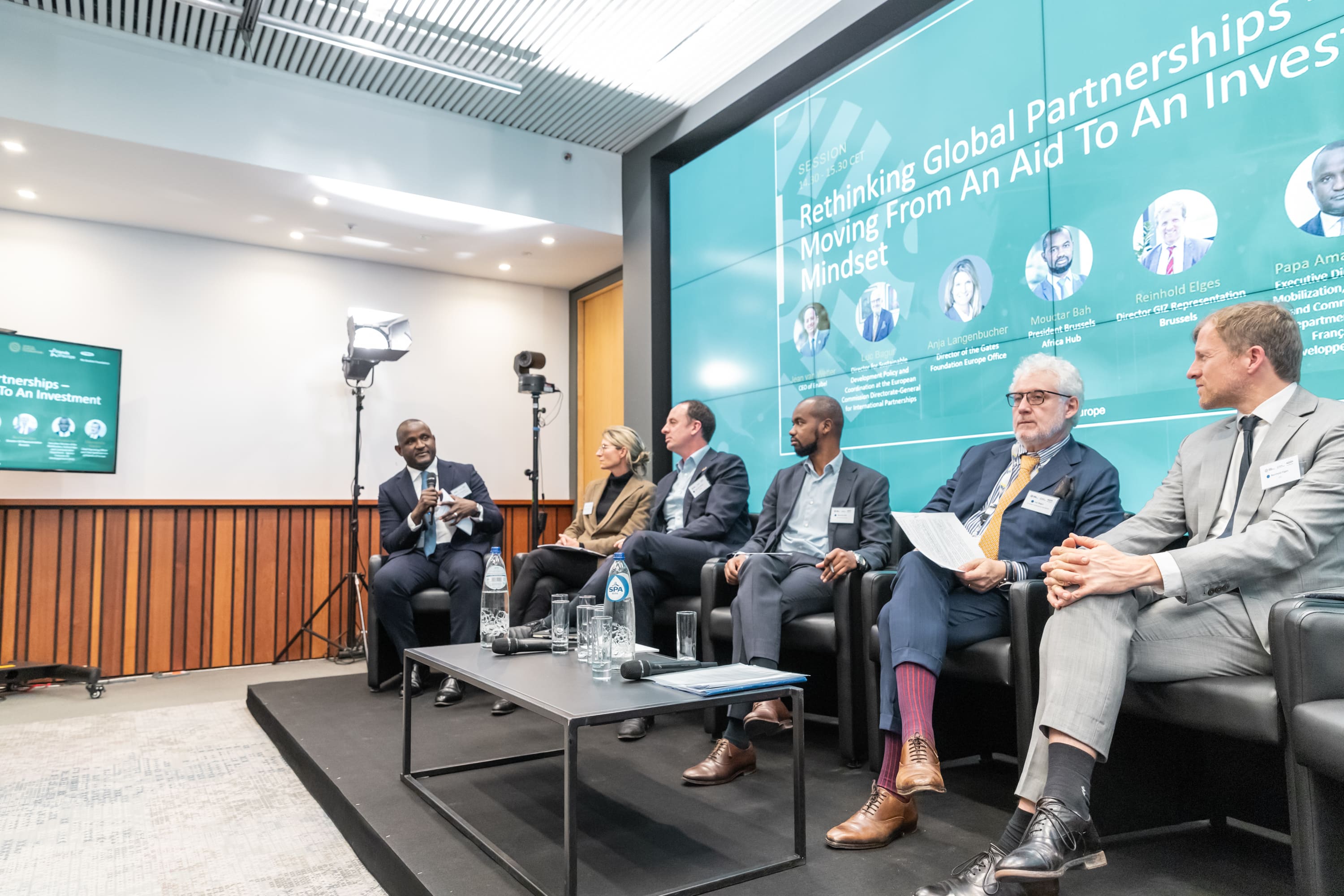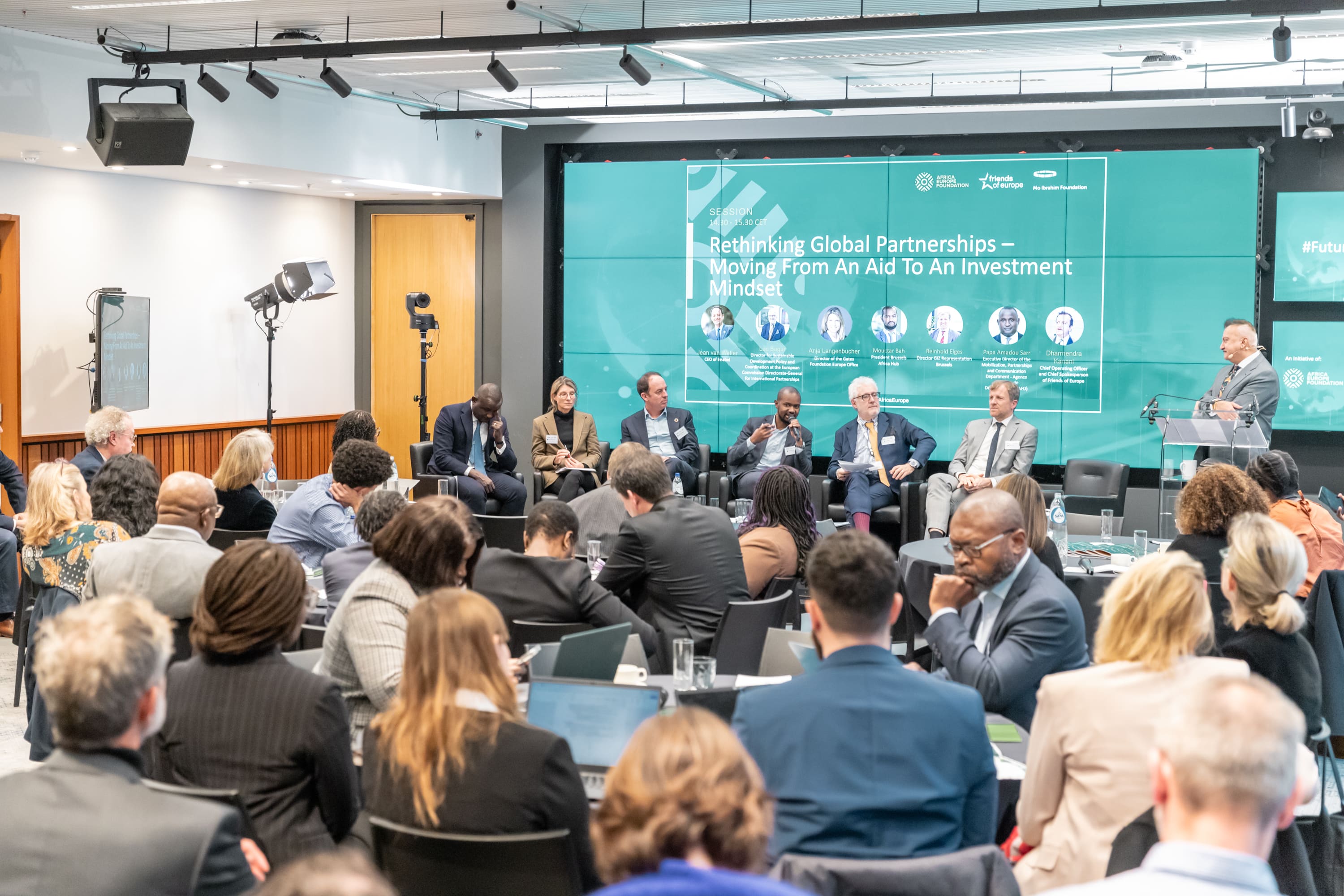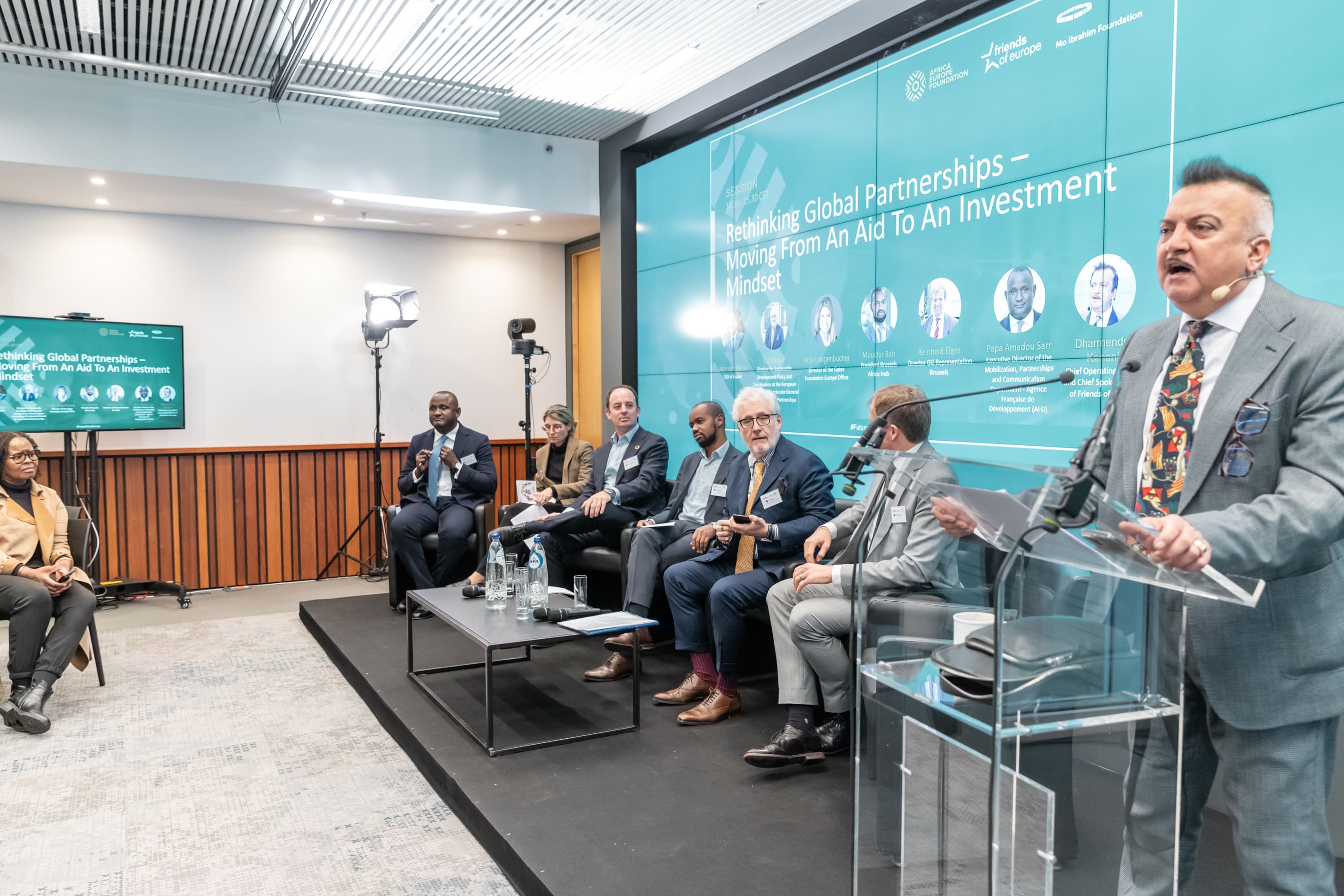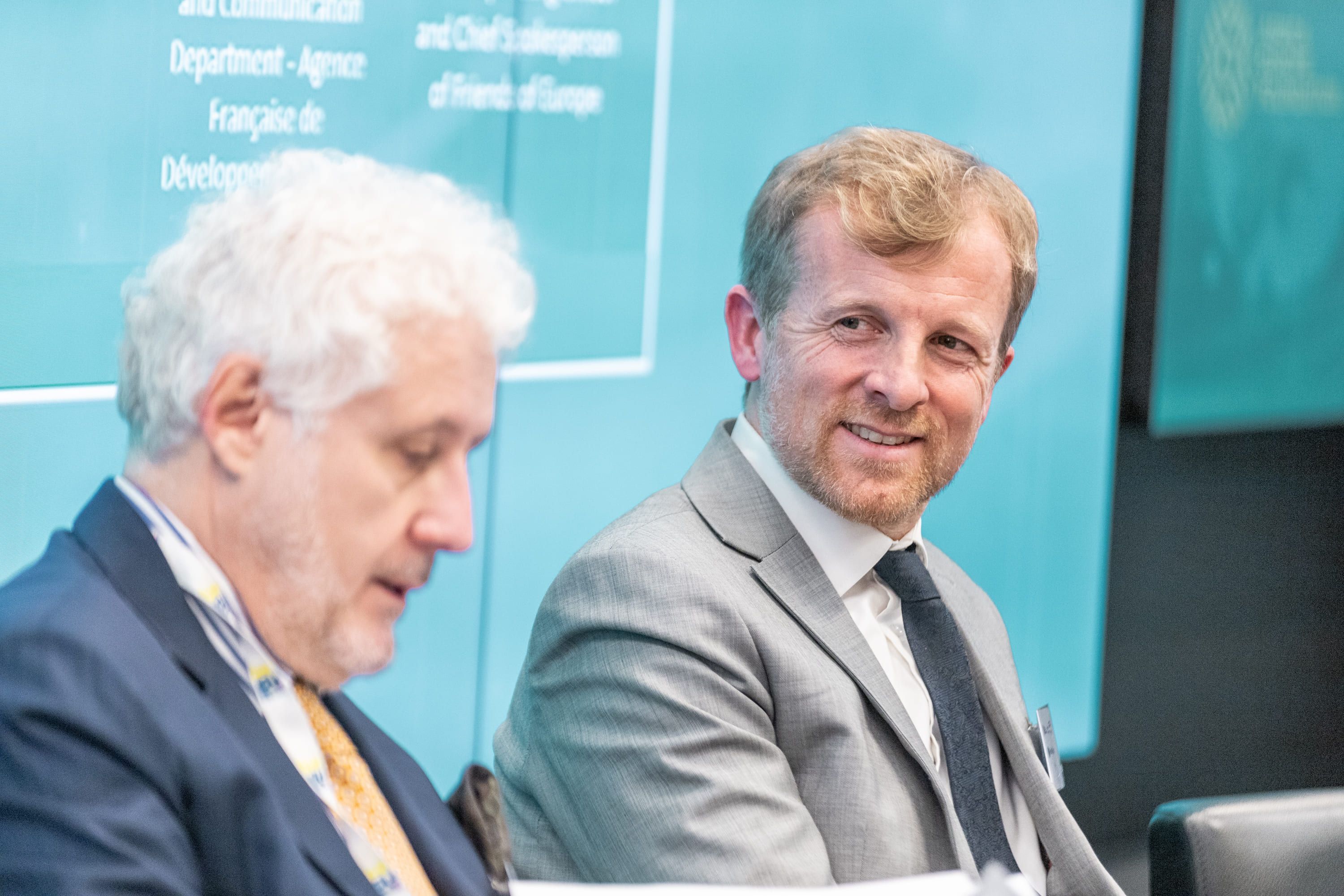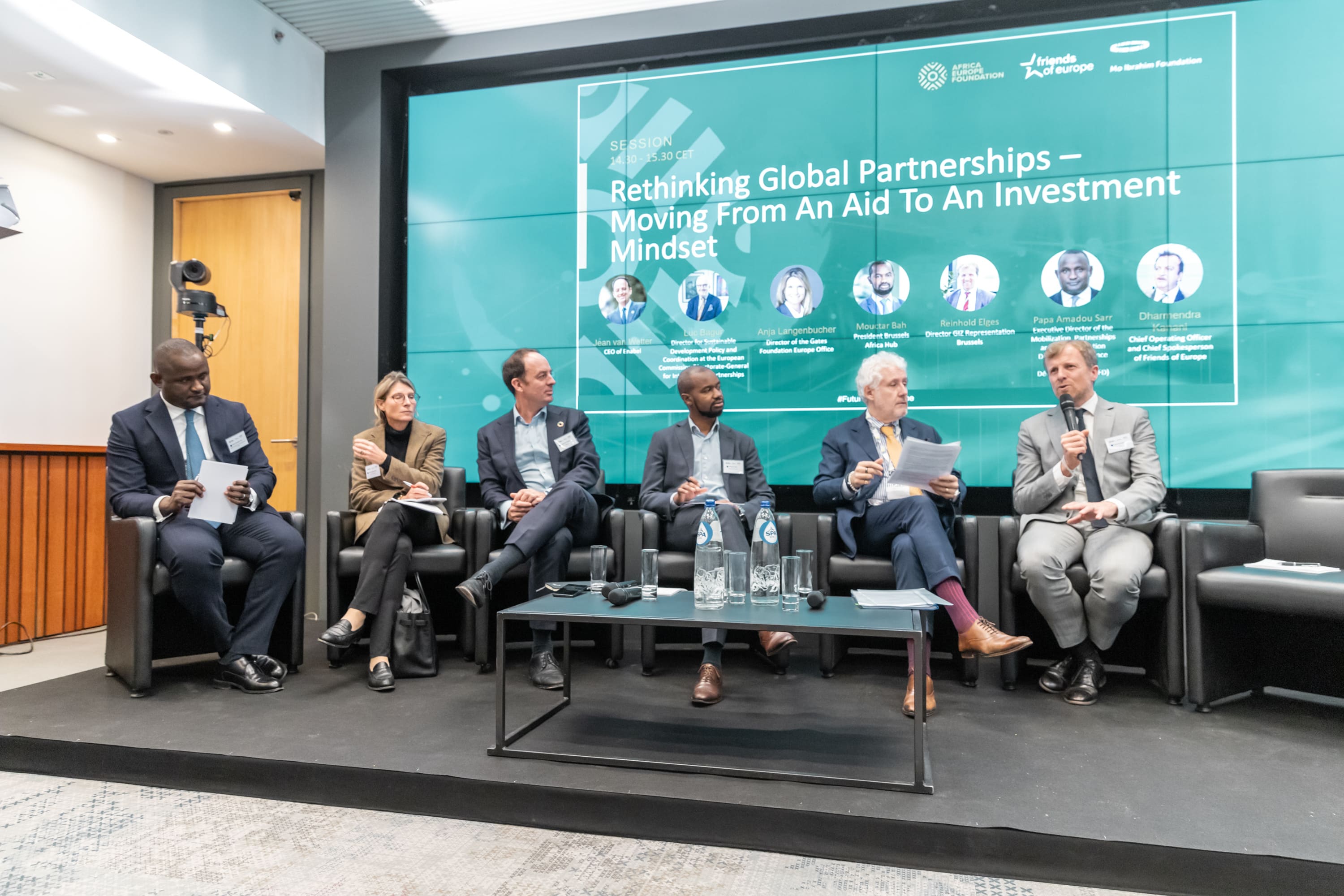FUTURE AFRICA-EUROPE HIGH-LEVEL FORUM 2024
- The Africa-Europe Foundation

From 5 to 6 November, the Future Africa Europe High-Level Forum 2024 brought in focus strategic areas of action which hold the most promise for a transformative, forward-looking partnership between our neighbouring continents – built on equal footing, mutual learning, and shared opportunities.
#FutureAfricaEurope was an initiative of the Africa-Europe Foundation (AEF) in partnership with its co-founders Friends of Europe and the Mo Ibrahim Foundation.
The 2024 Forum was built on the back of a far-reaching, year-long process, from the work of the AEF multi-stakeholder Strategy Groups to the #FutureAfricaEurope Roundtable of July 2024, Friends of Europe’s Global Europe programme and the Ibrahim Forum Annual Report on Financing Africa.
It was timed to take place as an immediate follow-up to the adoption of the ‘Pact for the Future’ and ahead of a series of interconnected strategic milestones in 2025, anchored by the Financing for Development International Conference.
Programme at a glance
The high-level forum aligned EU interests with Africa’s 2063 goals, emphasizing domestic resource mobilization for new cooperation models, prioritizing health in AU-EU dialogue, and exploring opportunities in sustainable digital infrastructure. It underscored the importance of collaboration with key players shaping this new AU-EU institutional chapter.
Watch the forum recording here.
Time For a Paradigm Shift
09.00 – 09.30 CET
‘Future Africa-Europe Forum’ hosted by Mo Ibrahim, Co-Founder of the Africa-Europe Foundation.
Perspectives on ‘Future Africa-Europe’ from Maryam Bukar Hassan, Nigerian poet, artist and social entrepreneur.
“I stand before you in a room where histories intertwine. Where the past resounds softly, not to divide but to remind us of the threads we must now weave together. Africa with her hands steady, Europe with her gaze shifted, both standing at the edge of a future waiting to be written.”Maryam Bukar Hassan.
Keynote introductory remarks by President Macky Sall, Co-Chair of the 6th EU-AU Summit, former President of Senegal and first Special Envoy for the Paris Pact for People and the Planet (4P).
“The relationship between Africa and Europe is at a tipping point - between a past that is behind us and a future yet to be built. We must move forward with a new deal founded on a revitalised partnership and a vision of shared values for a prosperous and mutually beneficial future, this will either bring our continents closer together or risk them drifting apart."President Macky Sall.
- Watch the session here.
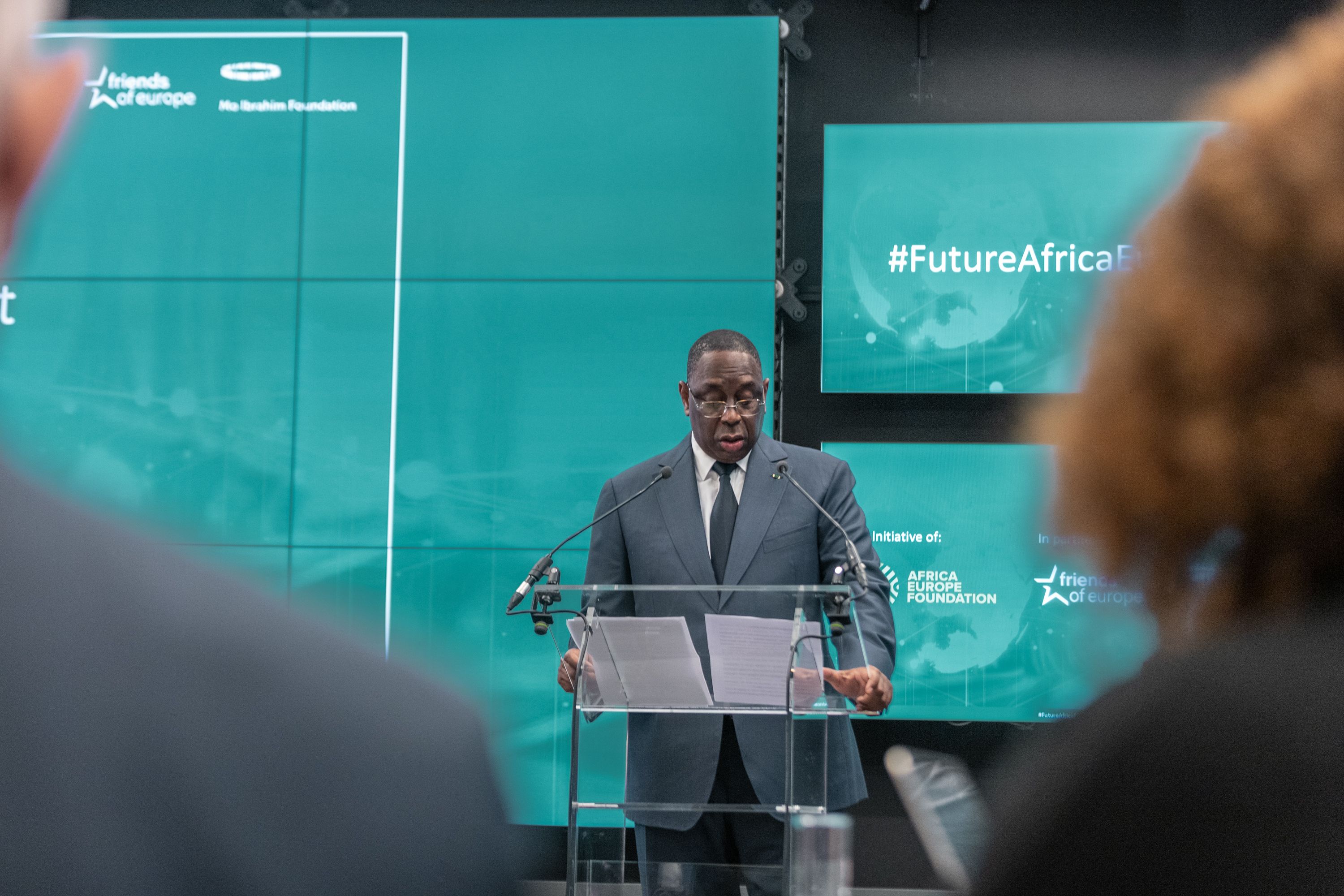
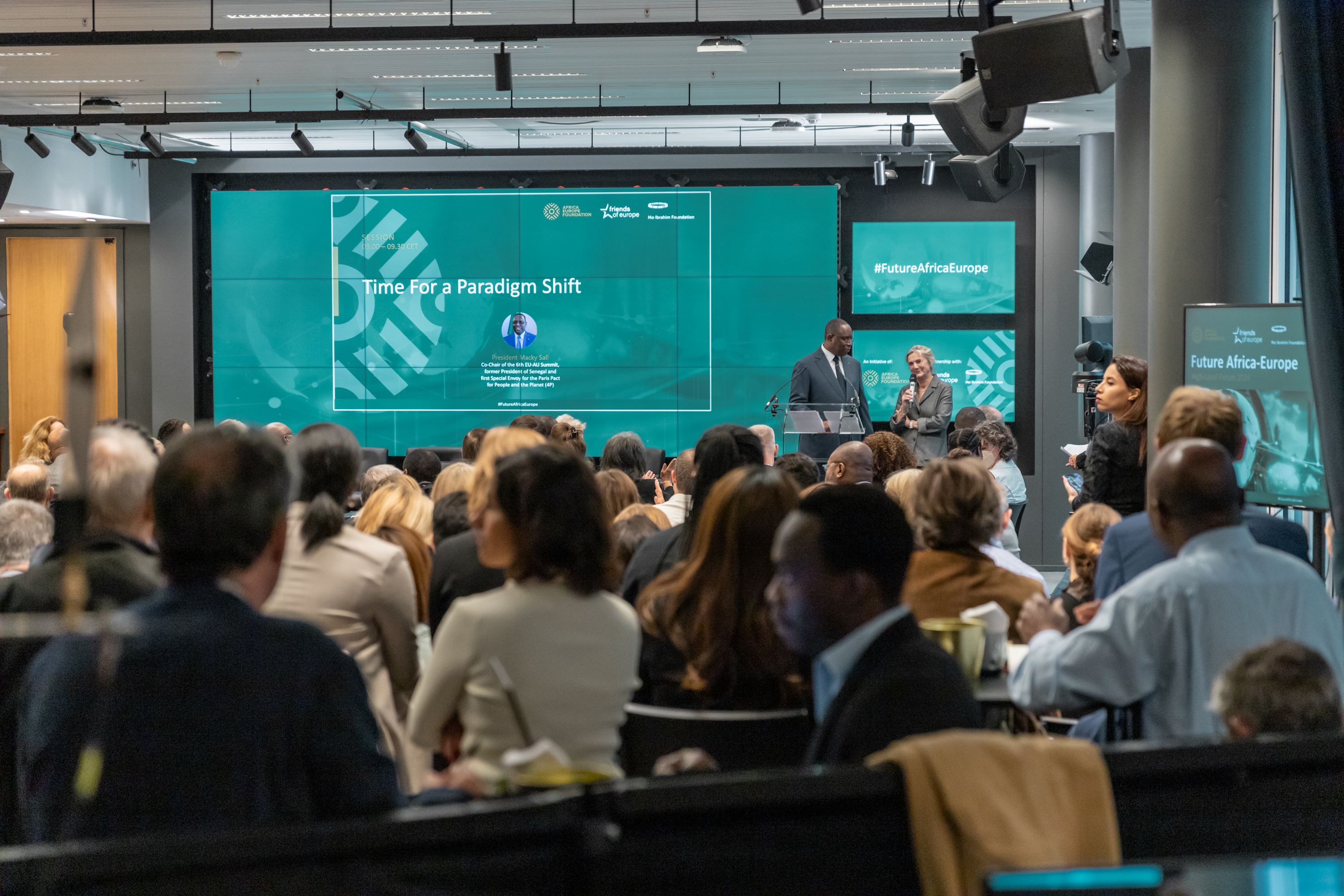
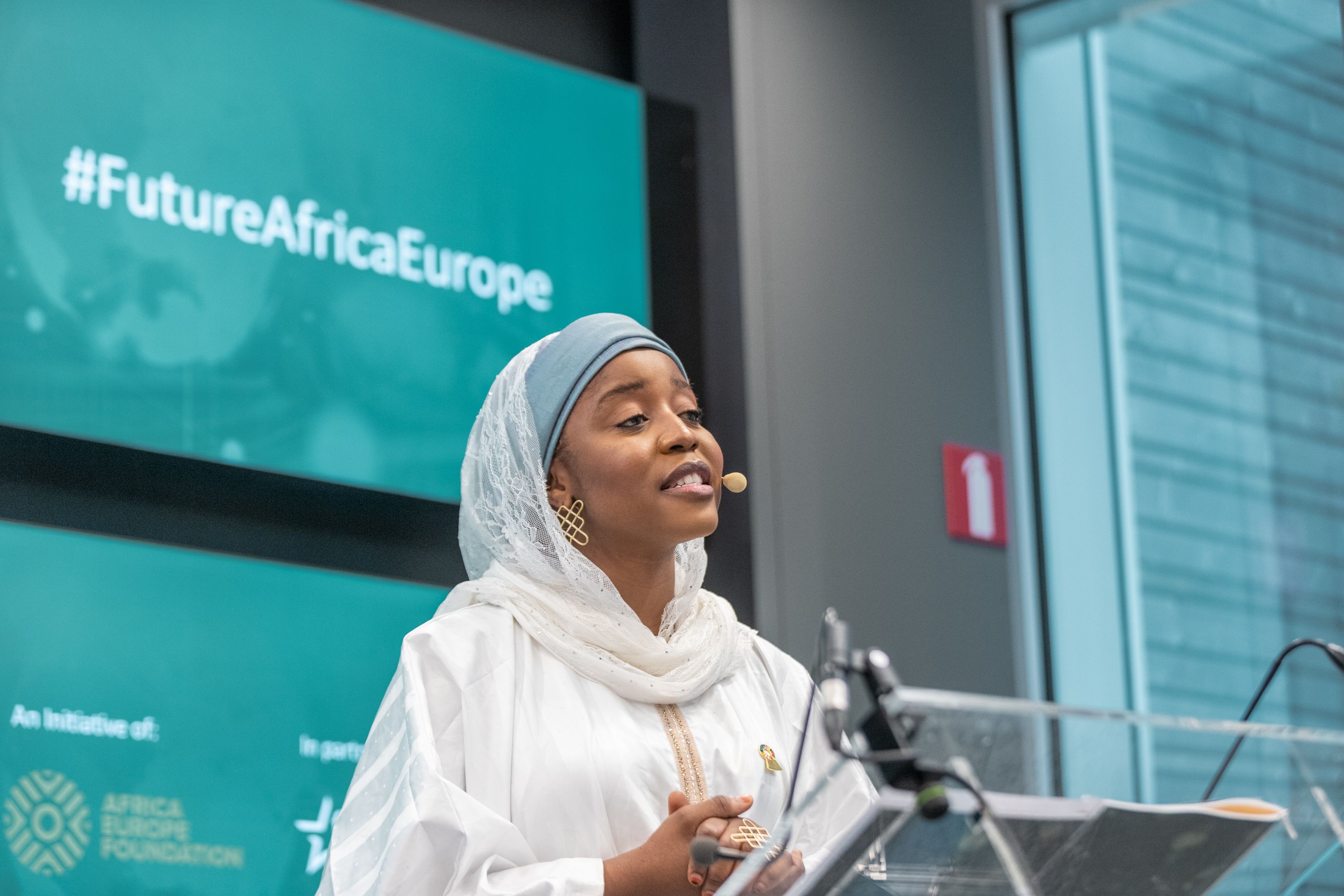
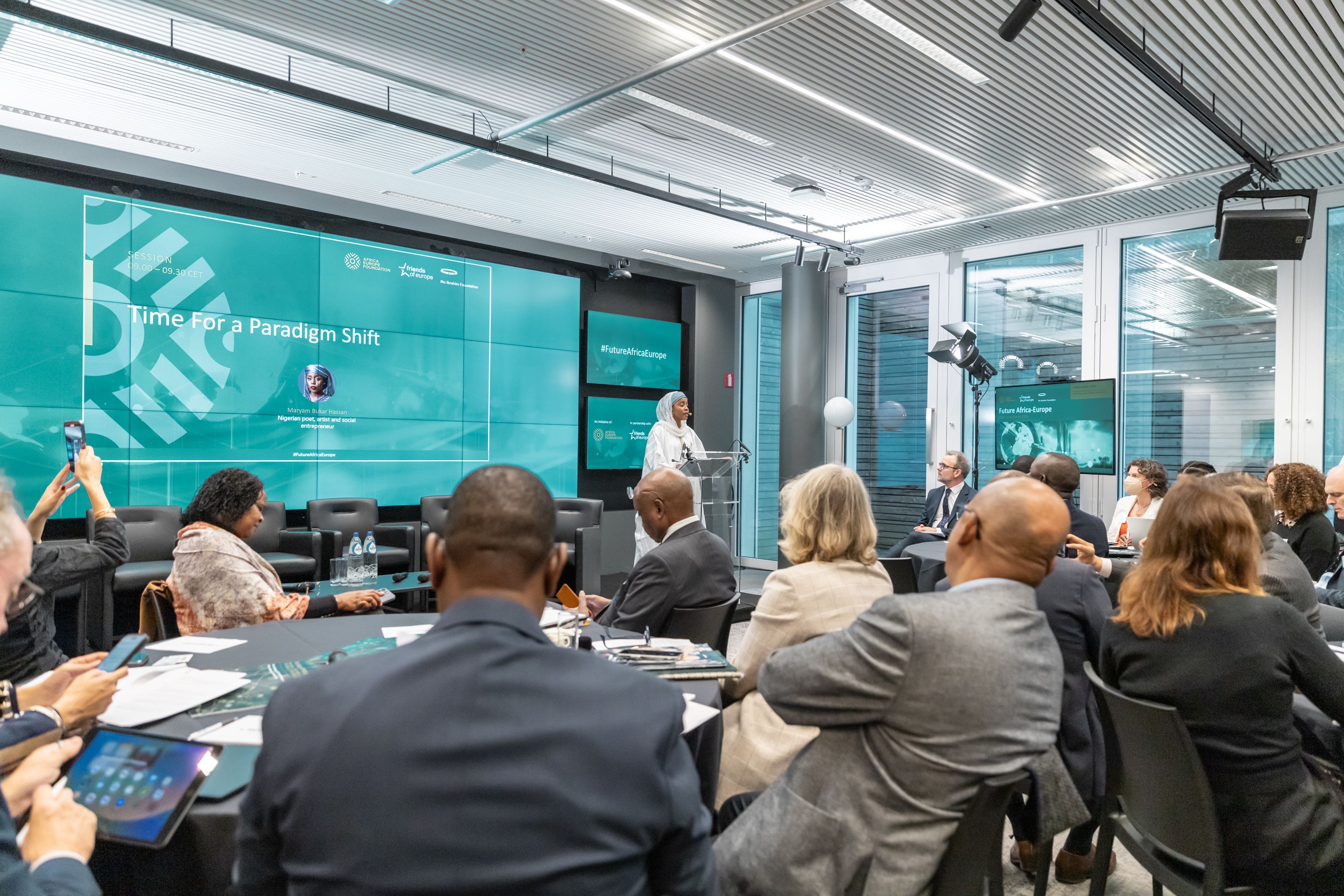
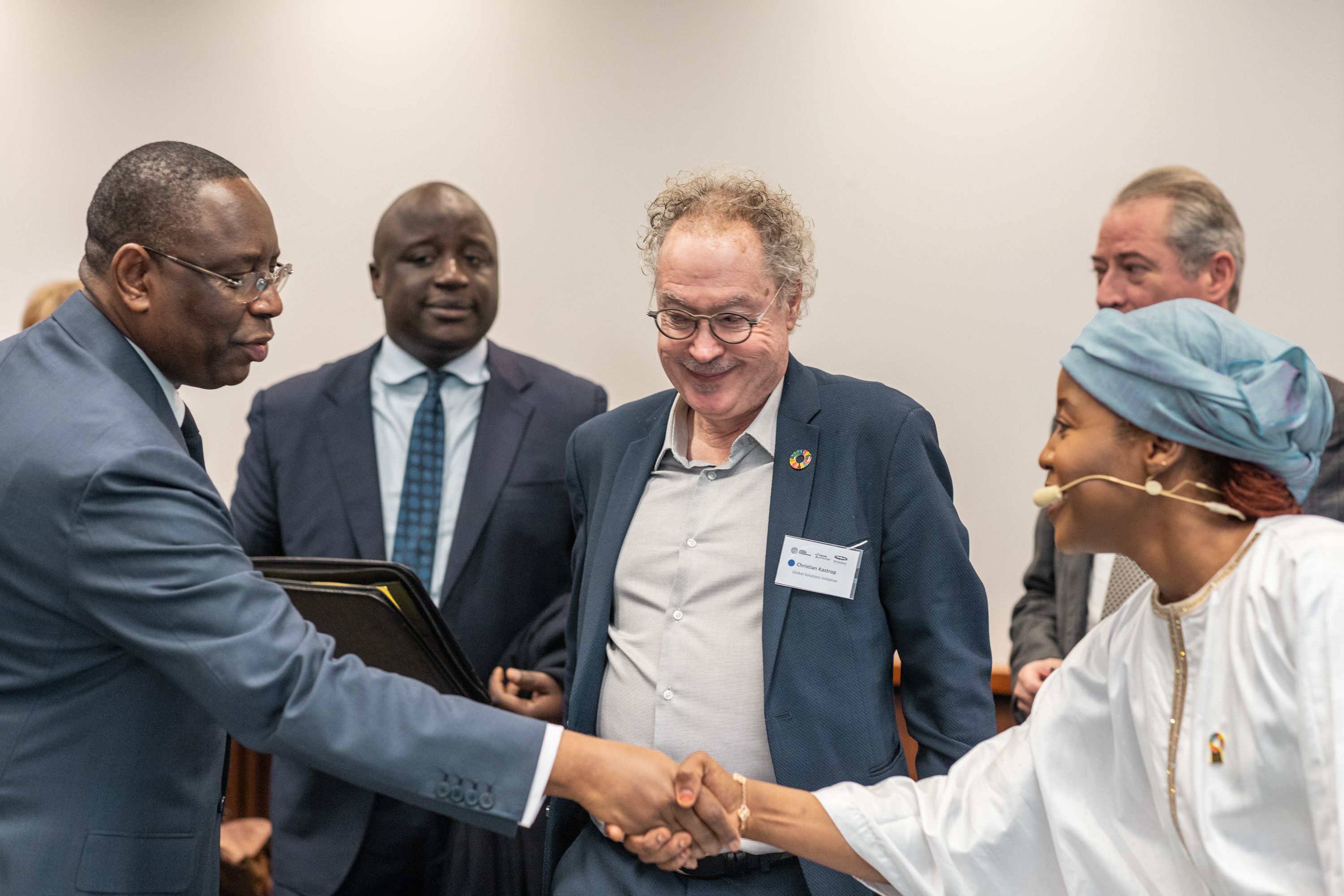
Financing our Future: Reimagining Global Financing Frameworks and Enhancing Cooperation for Sustainable Development
09.30 – 10.20 CET
Perspectives by Dr Donald Kaberuka, Co-Chair of the Council on State Fragility and Former President of the African Development Bank, Arancha González Laya, Dean of the Paris School of International Affairs at Sciences Po and former Minister of Foreign Affairs of Spain, Simon Mordue, Deputy Secretary General of the European External Action Service (EEAS), Myriam Ferran, Deputy Director General, European Commission Directorate-General for International Partnerships, with Ndidi Okonkwo Nwuneli, President and CEO of the ONE Campaign.
The discussion was framed by next year’s Financing for Development International Conference, to be hosted in Spain, and focused on how domestic resource mobilisation can underpin a different model of cooperation between Africa and Europe.
Key takeaways:
- Paradigm shifts away from aid require a comprehensive approach to close financing gaps, from productive investments and local value addition to combatting corruption. This includes tools that de-risk private sector investments, such as budgetary guarantees, as well as a focus on domestic revenue mobilisation, including the digitization of tax administration and transparency measures.
- Ahead of FfD4 and the 7th AU-EU Summit, Africa and Europe should step forward with a comprehensive “grand bargain” to transform the global financing landscape, including the reform of domestic and global taxation, stemming illicit financial flows through Mbeki report recommendations and unlocking savings investments.
- Migration is an elephant in most rooms but is also viewed as a historical and positive driver of global economic growth. The challenge is thus not to stop migration, but to bring order to irregular migration and manage the demographic and financial interdependence of Africa and Europe.
“We need to build a grand bargain between Europe and Africa [on finance]...let's look at what Africa is ready to do, and it wants to do it because it understands it's in its own interest and let's look at what Europe needs to do.” Arancha González Laya, Dean of the Paris School of International Affairs at Sciences Po and former Minister of Foreign Affairs of Spain.
- Watch the session here.
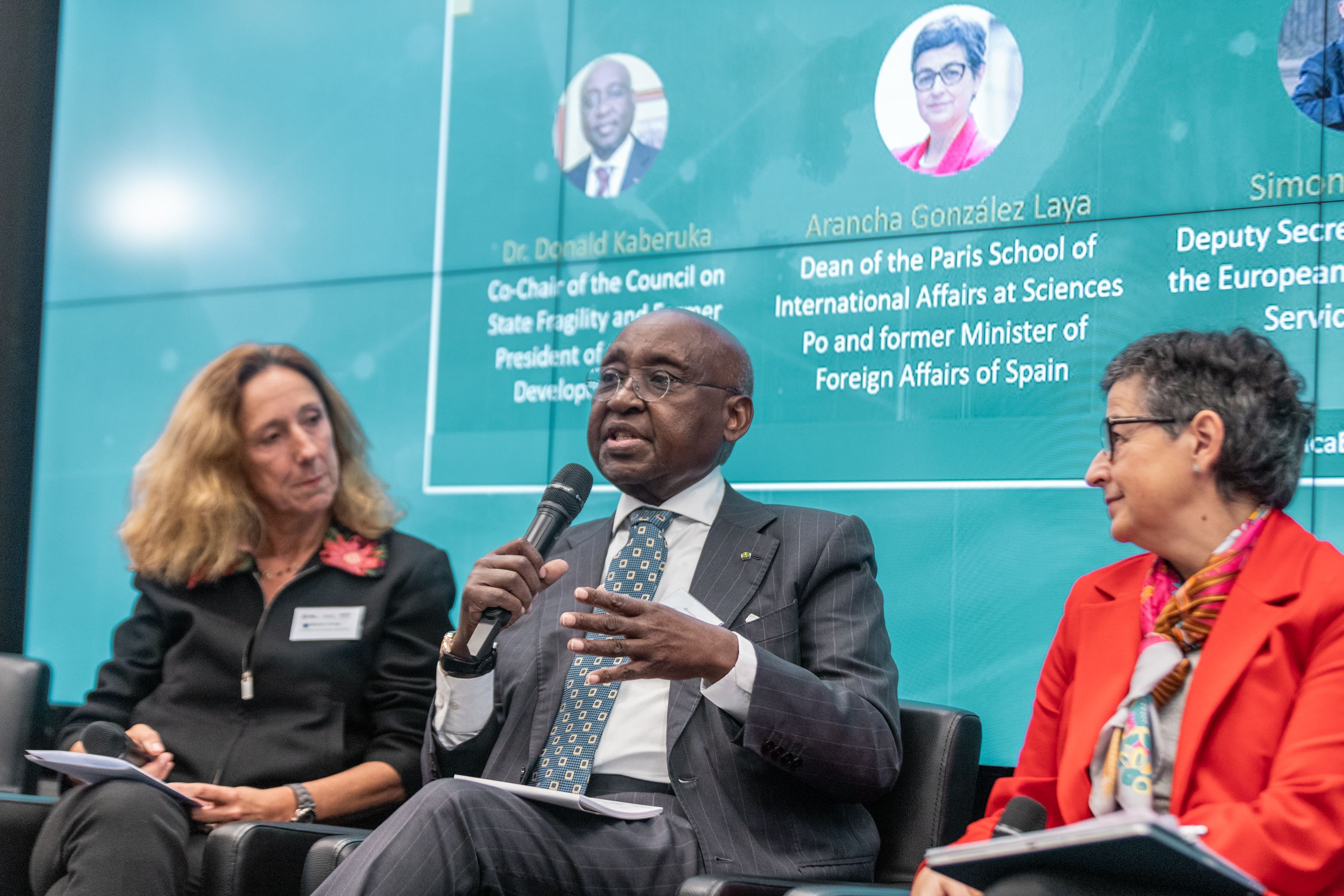
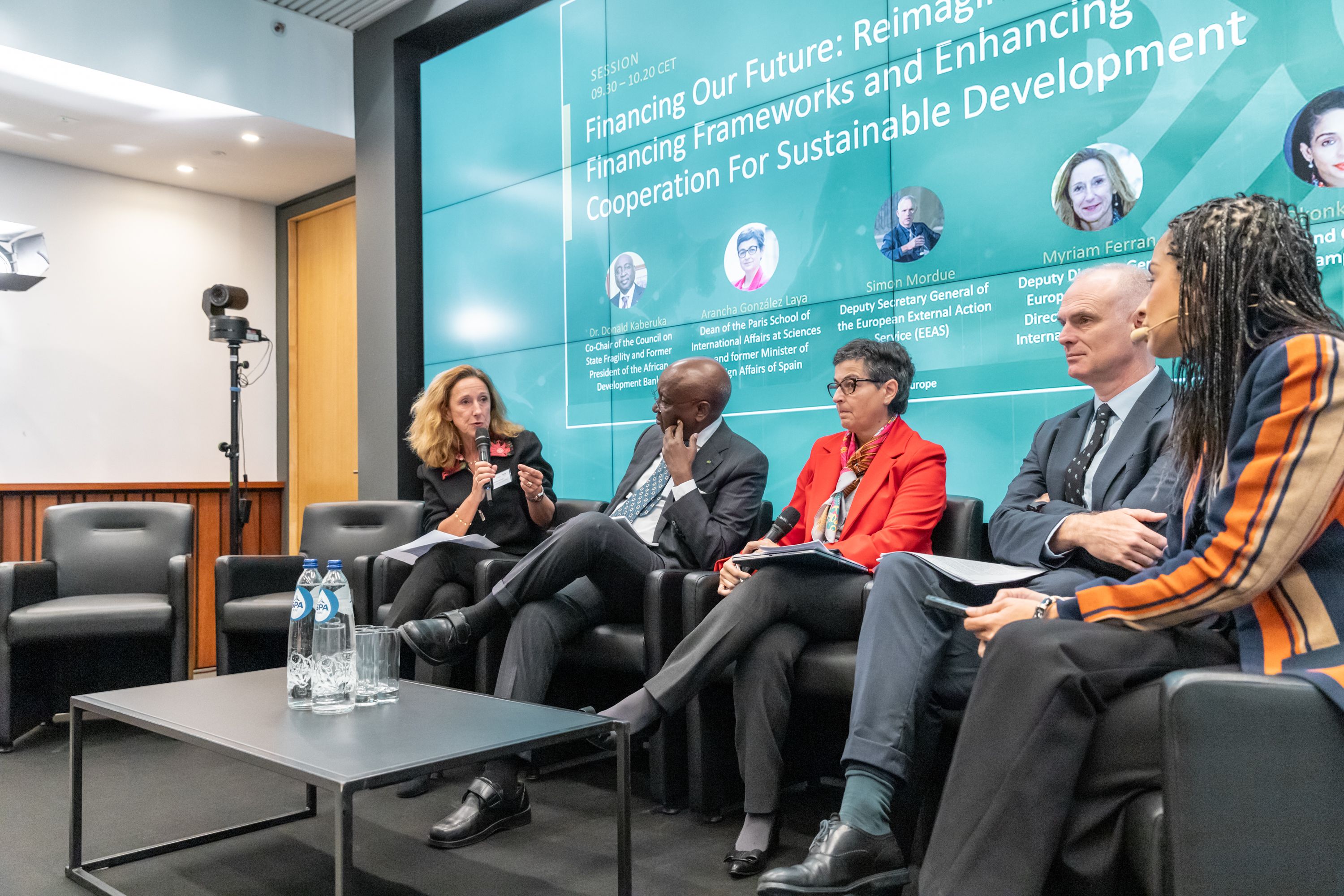
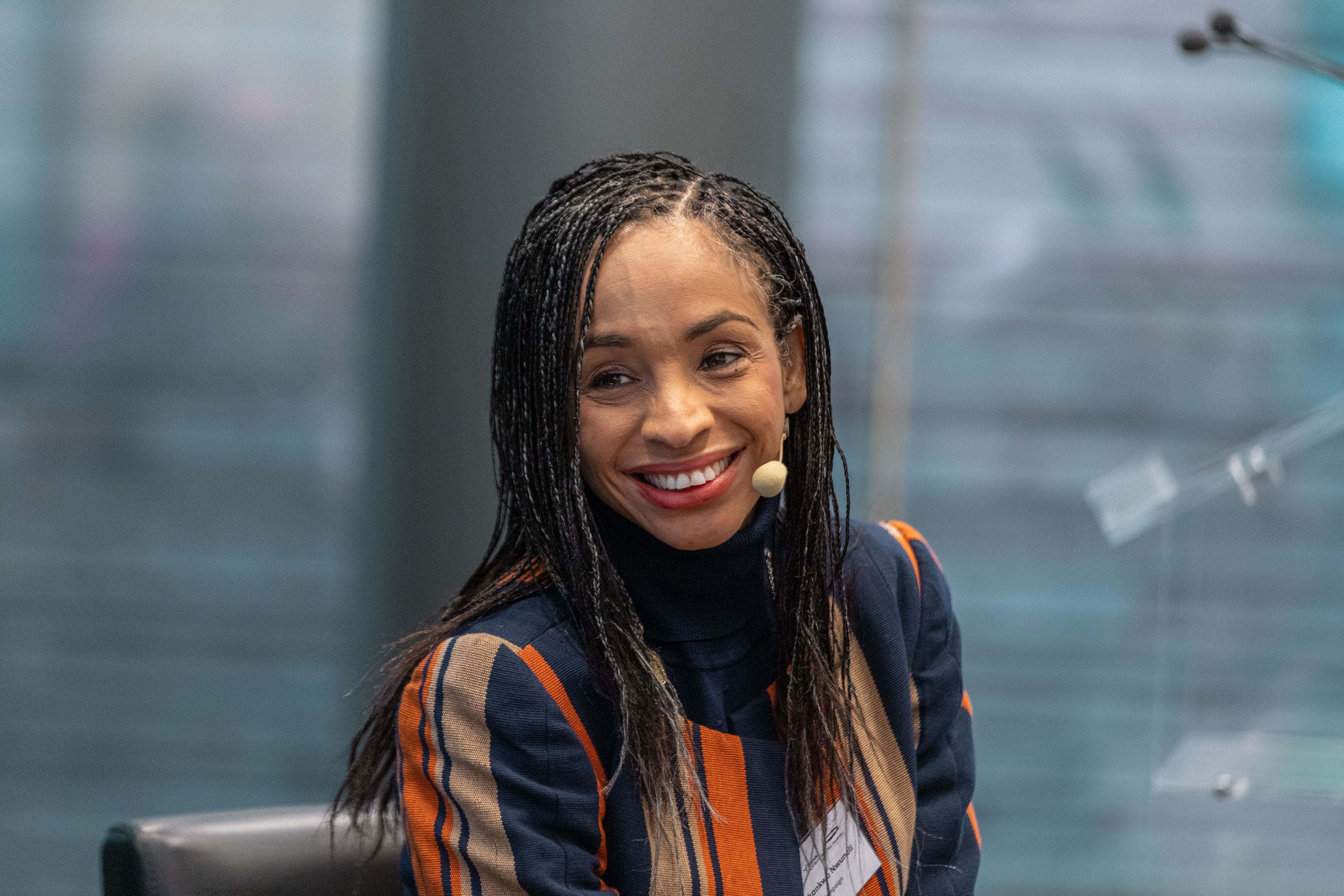
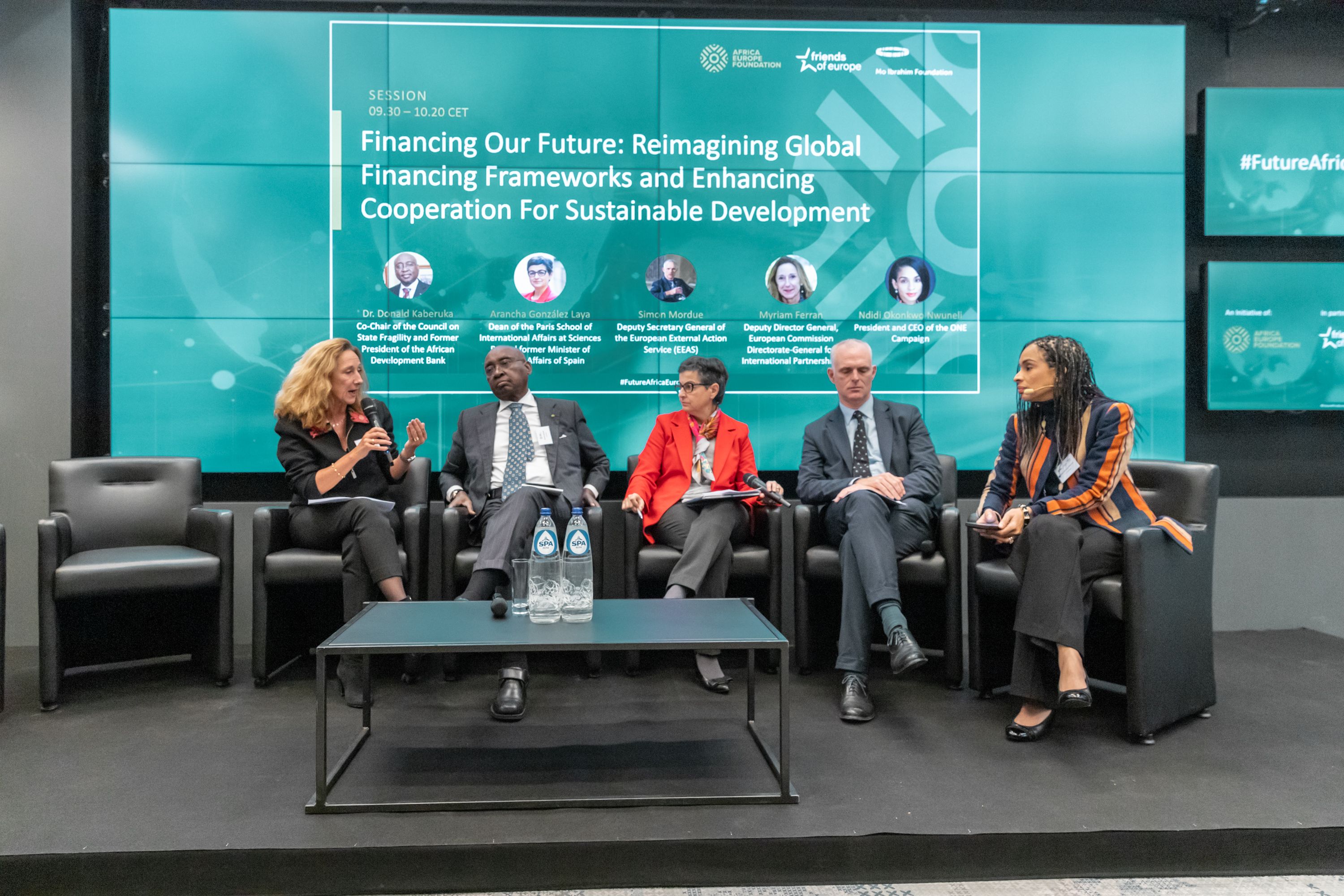
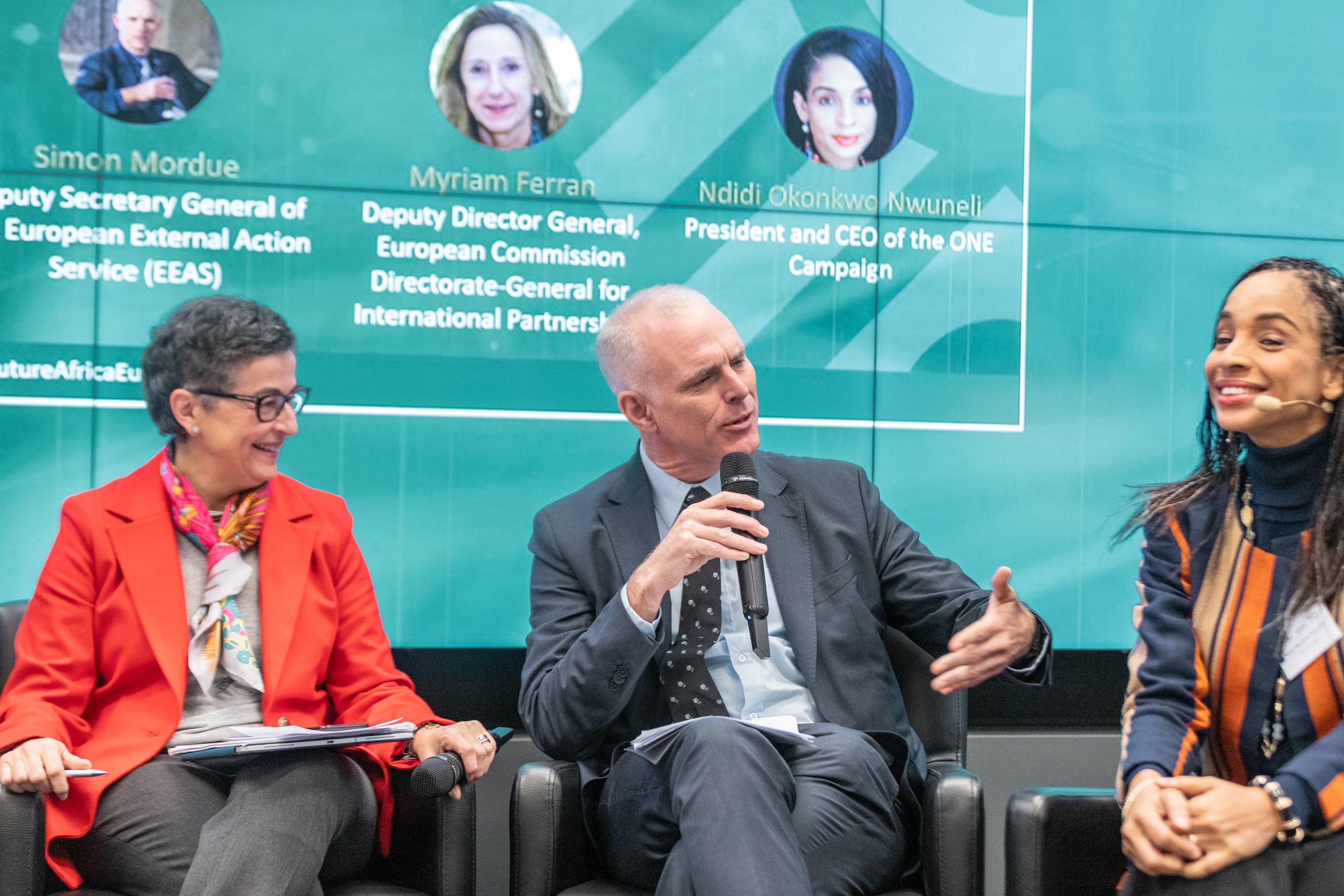
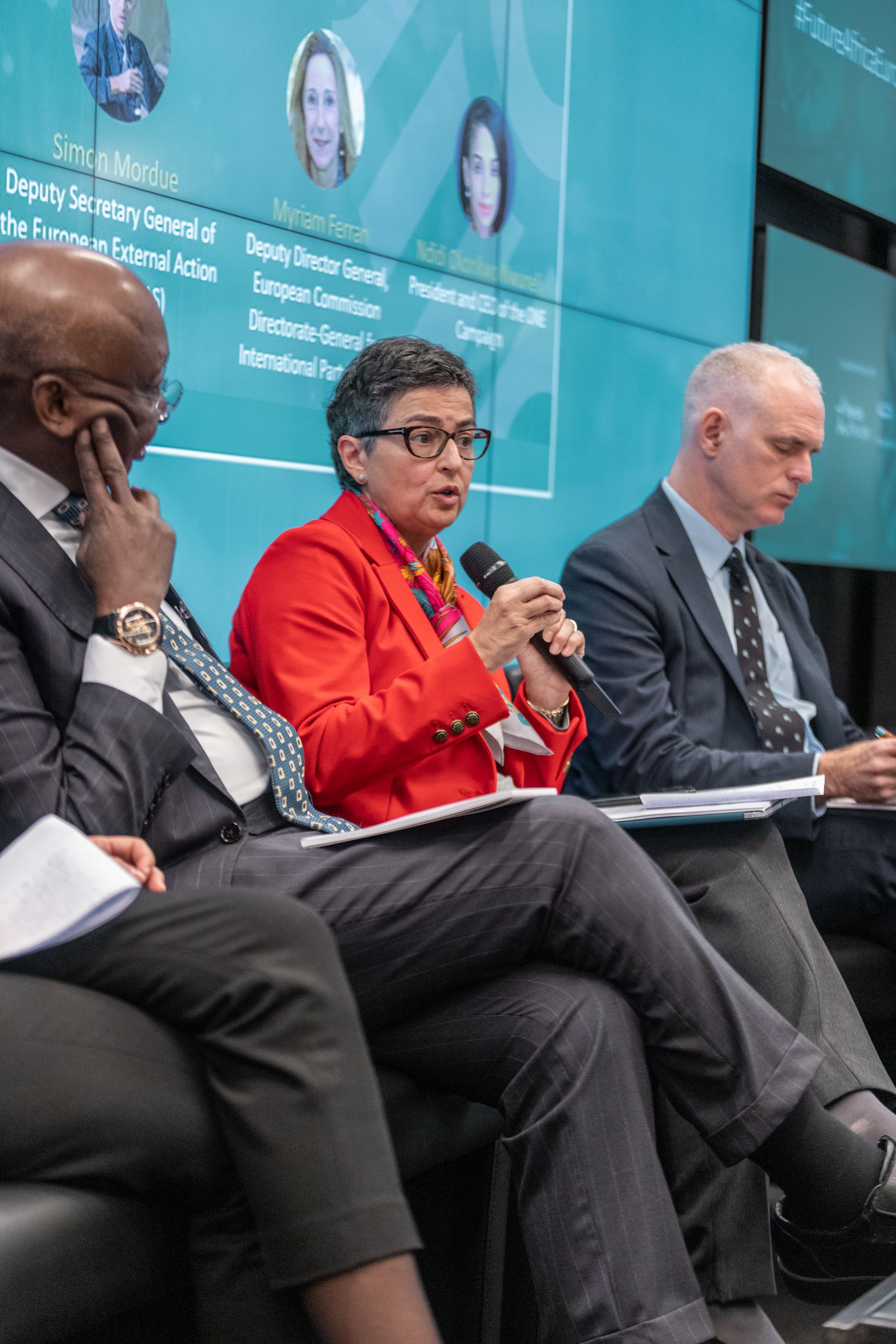
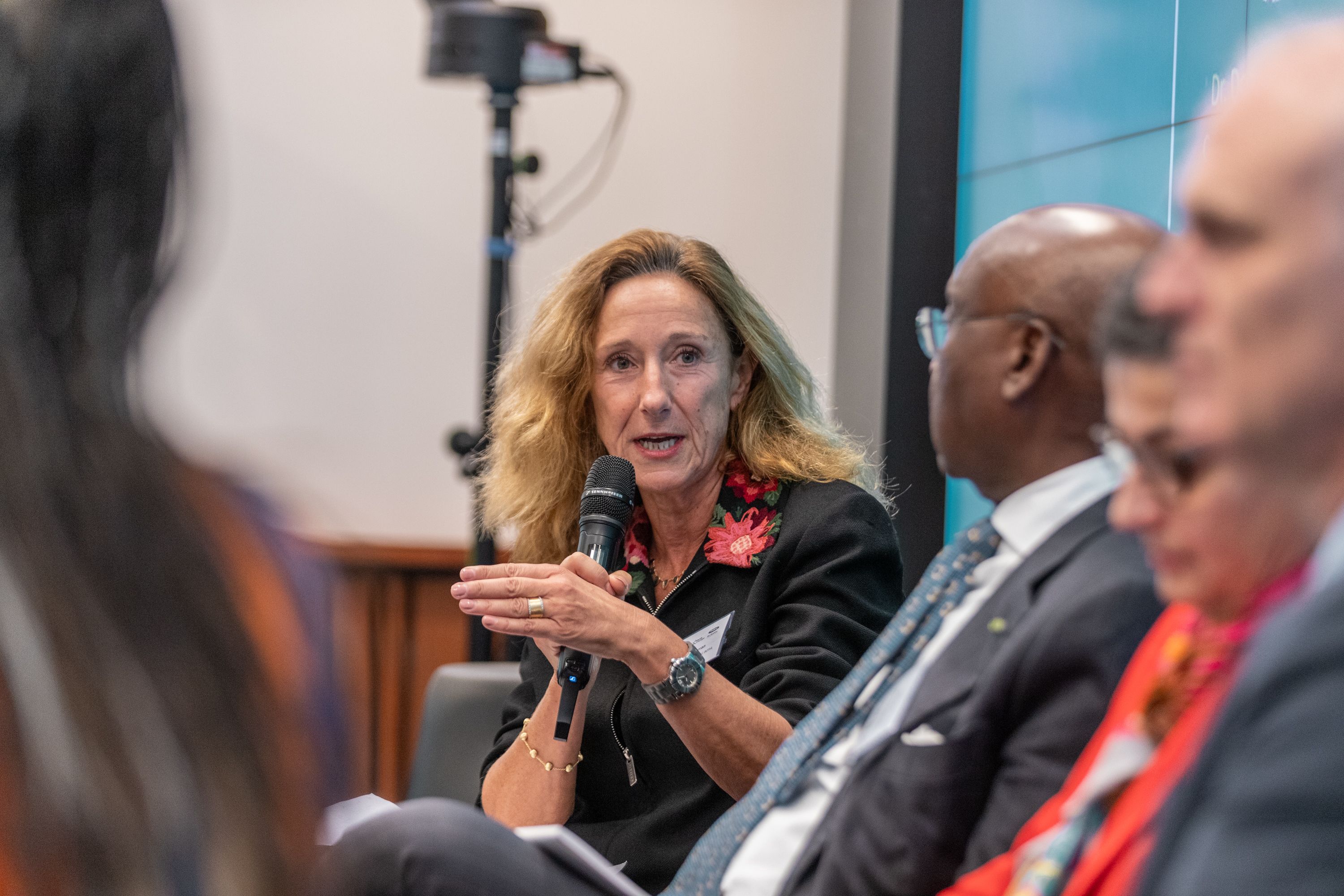
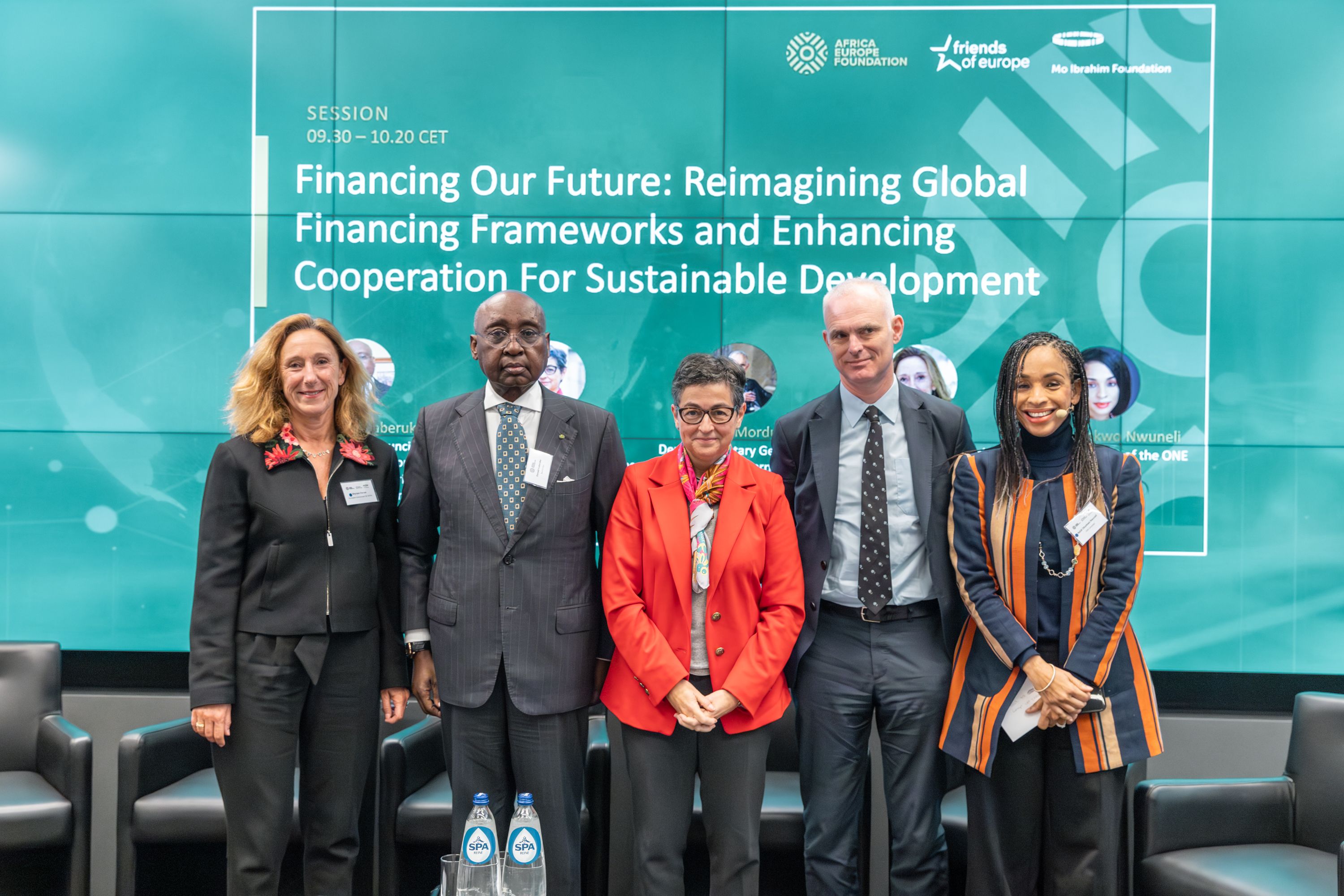
Long-View Leadership
10.20 – 10.40 CET
An intergenerational conversation with President Mary Robinson, Co-President of the Africa-Europe Foundation and Chair of The Elders and Bora Kamwanya, Vice president of Pan African Youth Union and member of the Mo Ibrahim Foundation Now Generation Network.
Key takeaways:
-
Long-view leadership and collaboration across generations is essential for shaping impactful, future-proof policies, as is investing in youth political representation.
-
A follow-up to the 4th Africa-Europe Youth Summit and its 2017 Abidjan Declaration is an essential next step to the UN Summit of the Future, as is re-establishing the collaboration between the European Youth Forum and the Pan-African Youth Union.
-
Watch the session here.
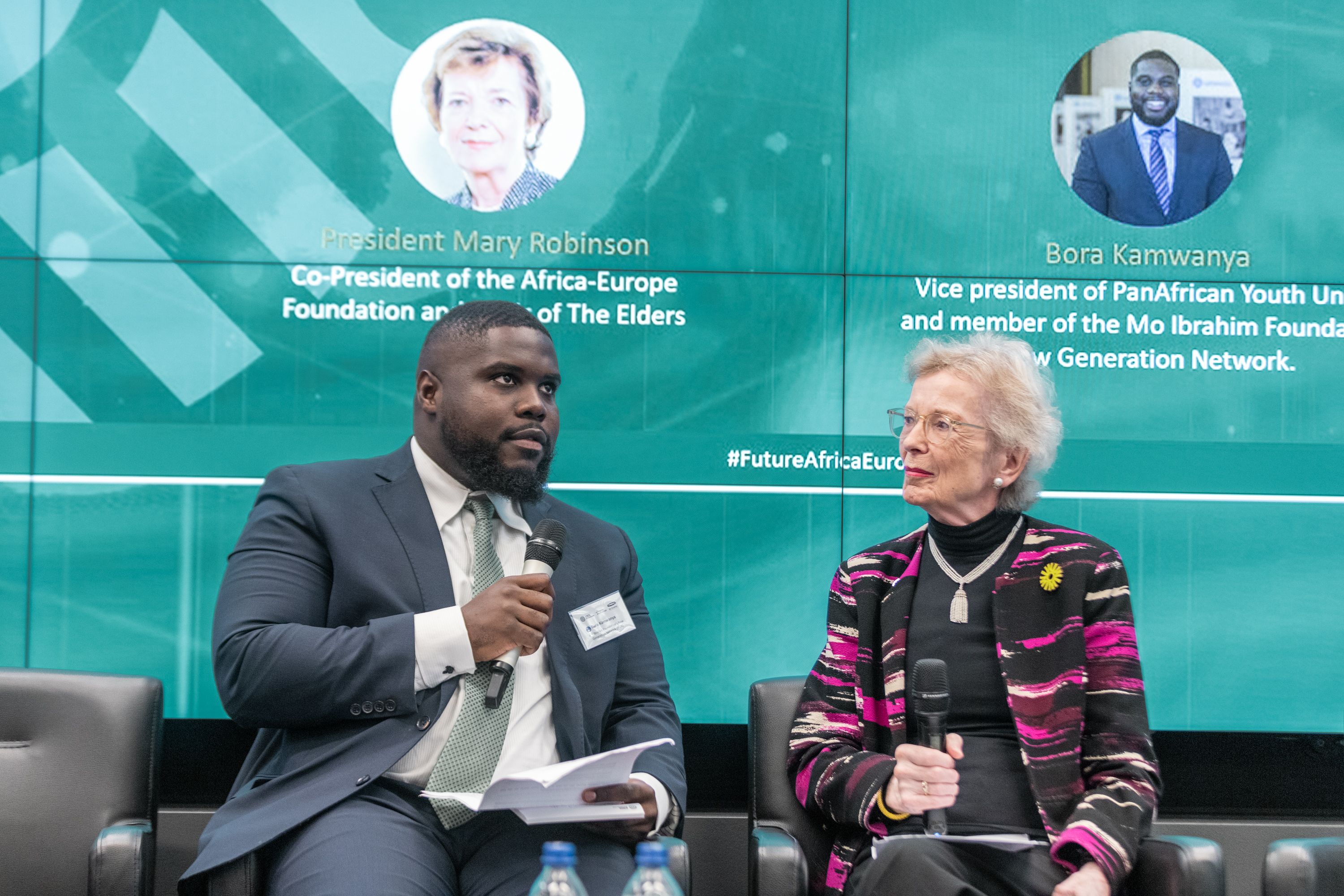
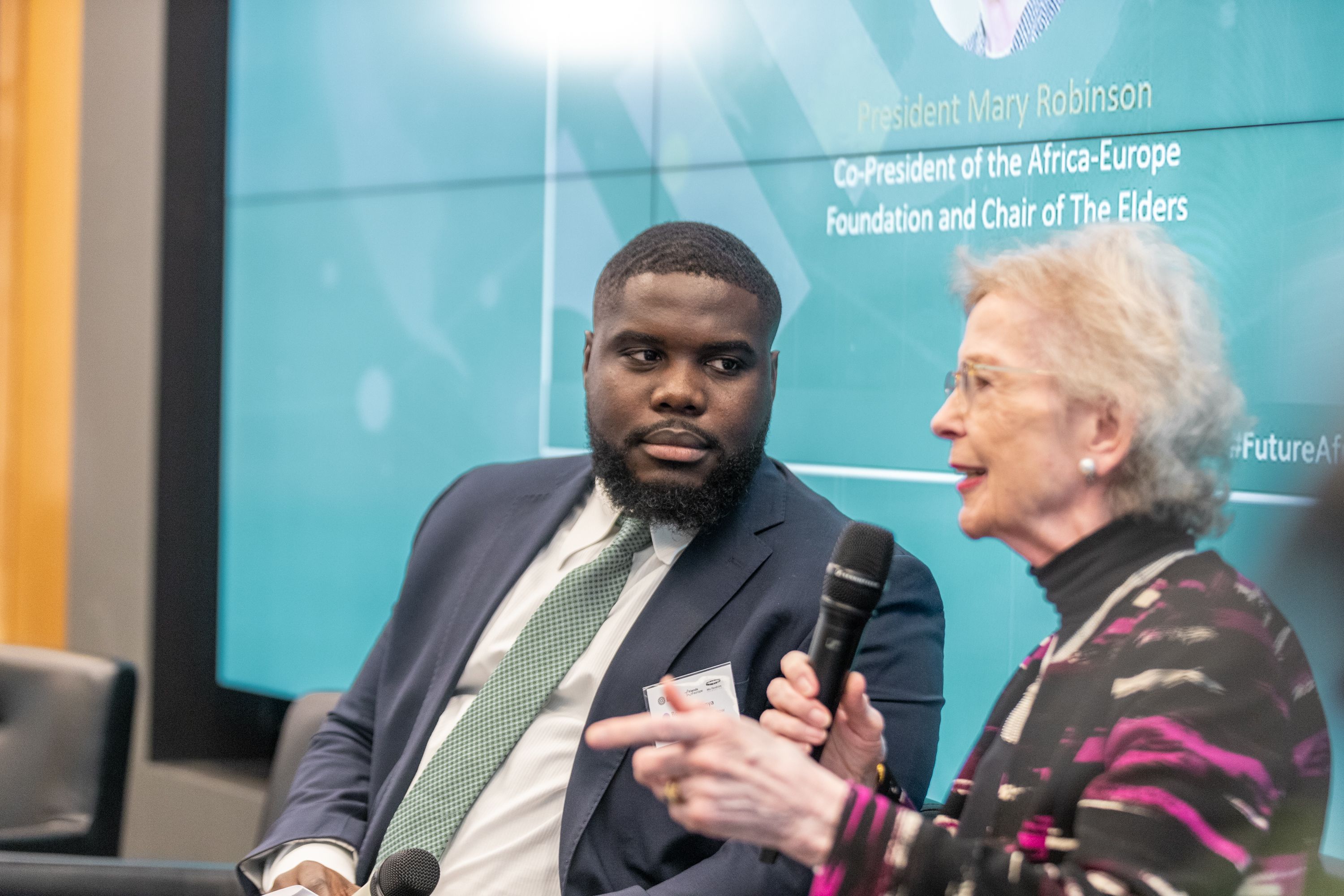
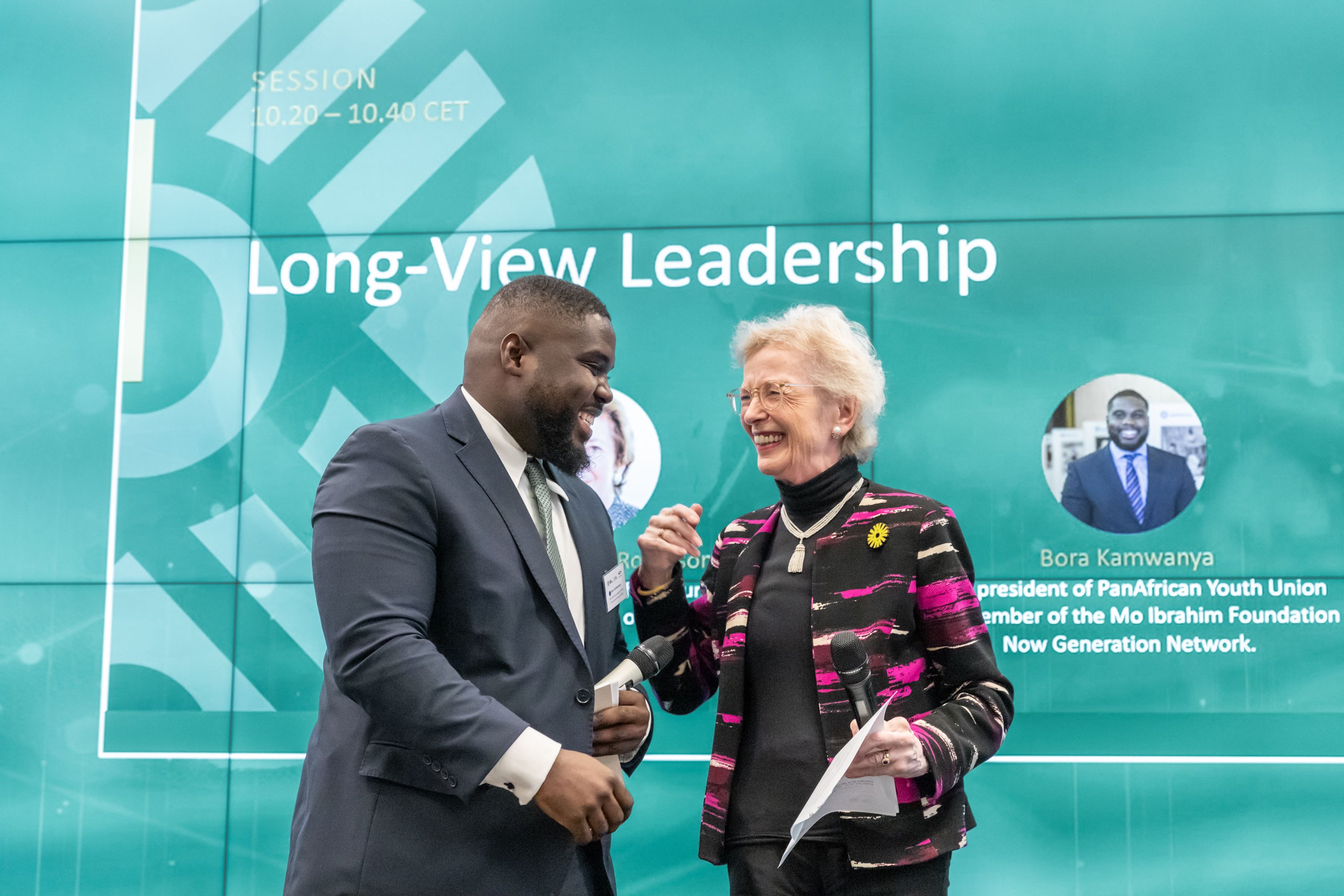
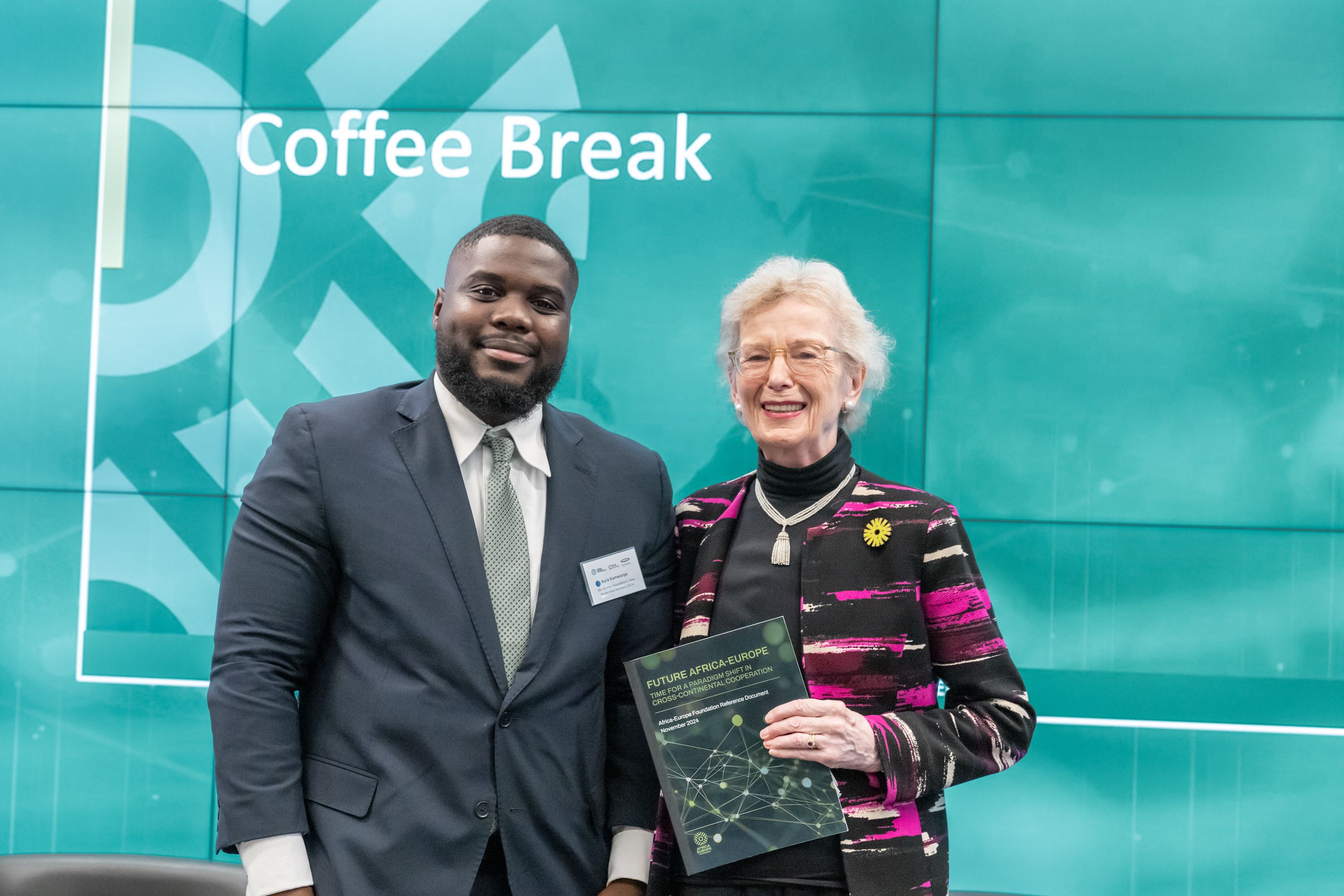
The Future Of Industrialisation – Reconciling Climate, Development & Global Trade
11.00 – 11.50 CET
Perspectives by Dr Ibrahim Mayaki, African Union Special Envoy for Food Systems, former Prime Minister of Niger and former CEO of AUDA-NEPAD, Pedro Manuel Moreno, Deputy Secretary-General of UN Trade and Development, with Carlijn Nowen, Co-Founder of the Climate Action Platform for Africa (CAP-A) and Co-Lead for the forthcoming Africa-Europe Action Report on Green Industrialisation (‘The Grand Bargain’).
The discussion put in focus how to reconcile EU interests and Africa’s 2063 development goals when it comes to new programming across climate, economic development and global trade including drawing on recent industrialisation initiatives.
Key takeaways:
-
Interlinked policies that simultaneously address development and climate challenges could facilitate more self-sufficient economies that meet growing employment demands - estimated at 20 million jobs annually for the next two decades in Africa.
-
Advance a blueprint for inclusive economic and human development linked to supply chain diversification and resilience, distributed across the two continents, with a focus on green and blue transitions (energy intensive industries, agri-food systems; blue economy; strategic infrastructure, and climate compatible industrialisation).
-
Unpack bilateral partnerships and strengthen trade agreements to foster shared production closer to critical raw materials in Africa - reducing costs and emissions while supporting regional development and competitiveness, especially through frameworks like the African Continental Free Trade Area.
-
Watch the session here.
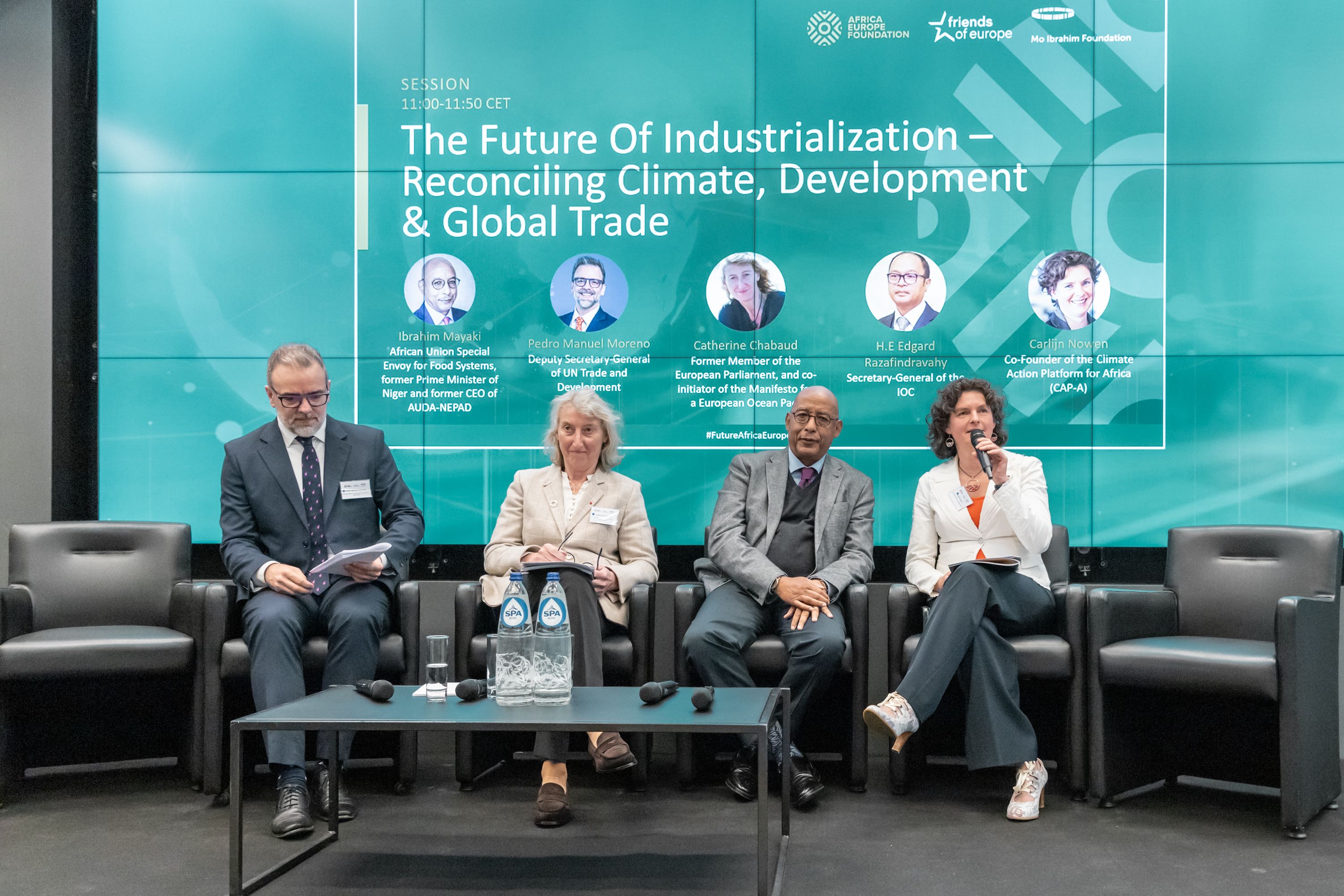
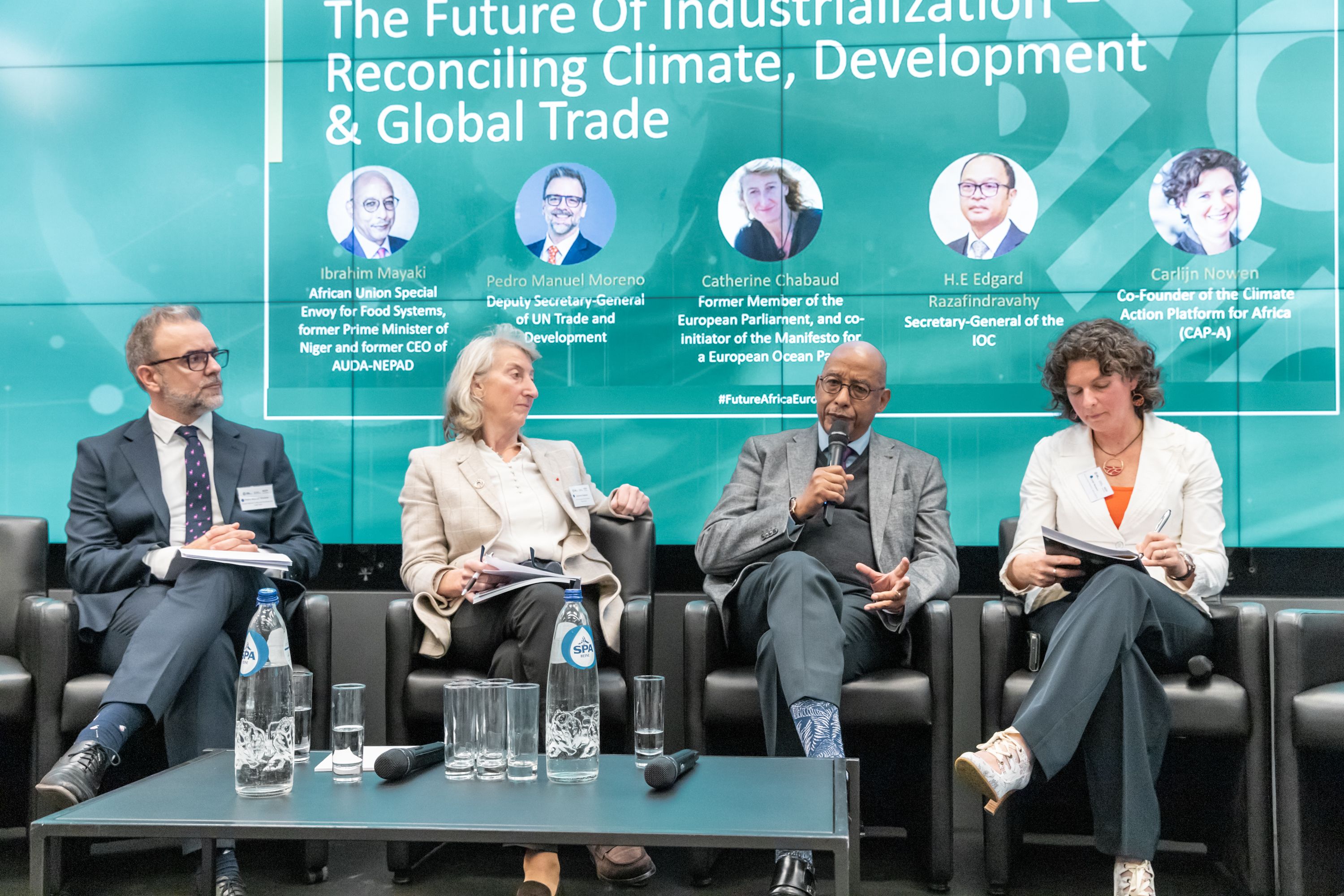
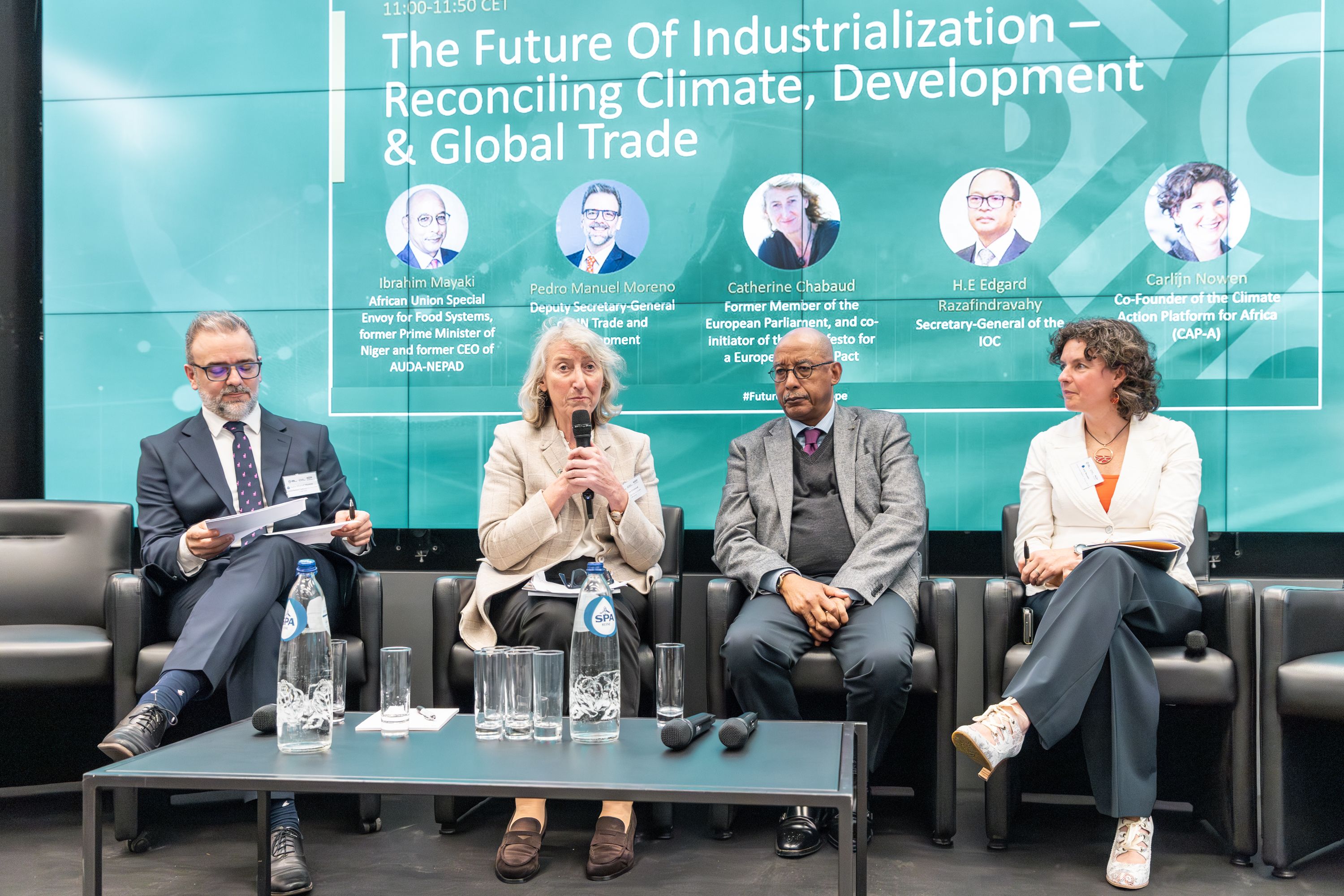
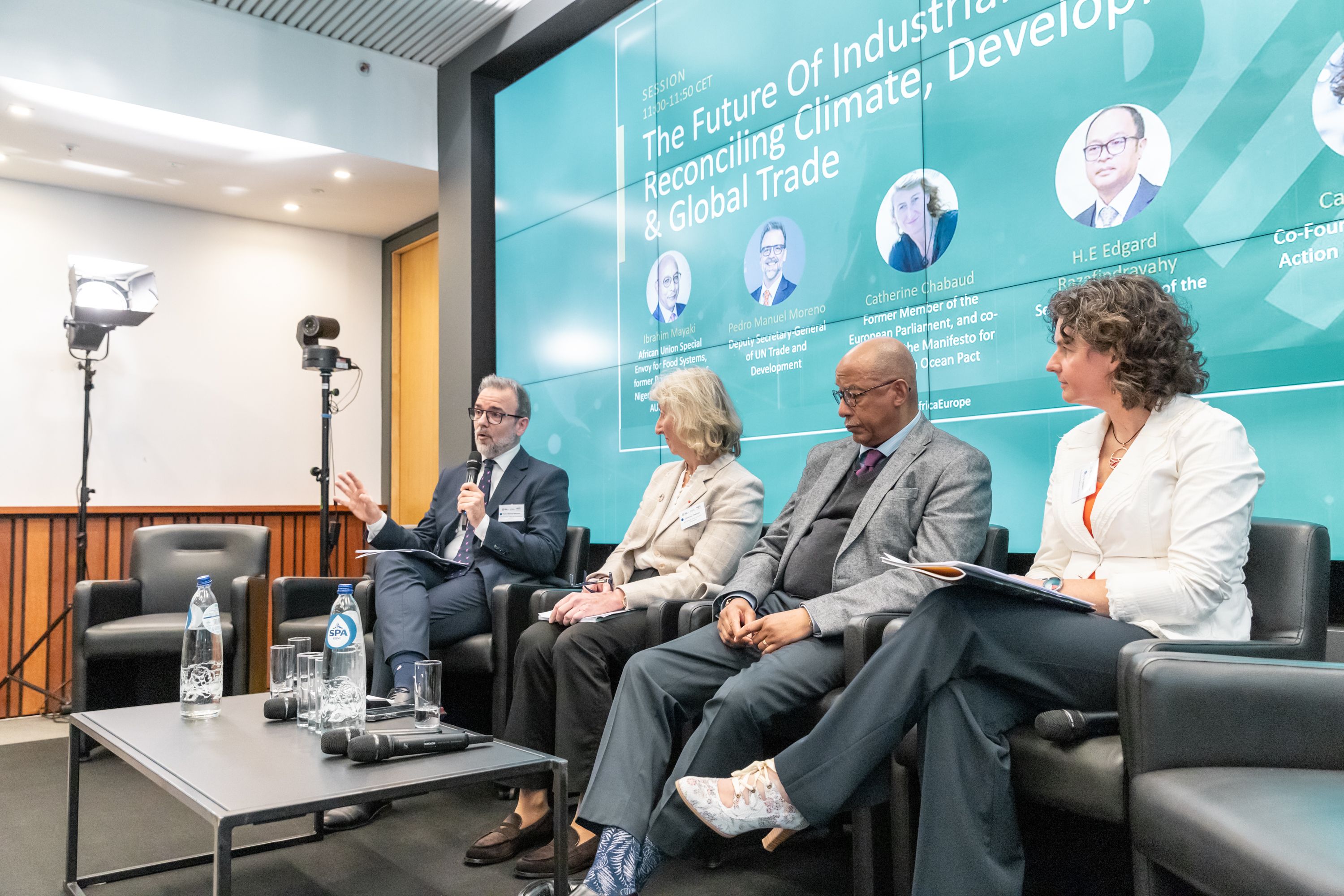
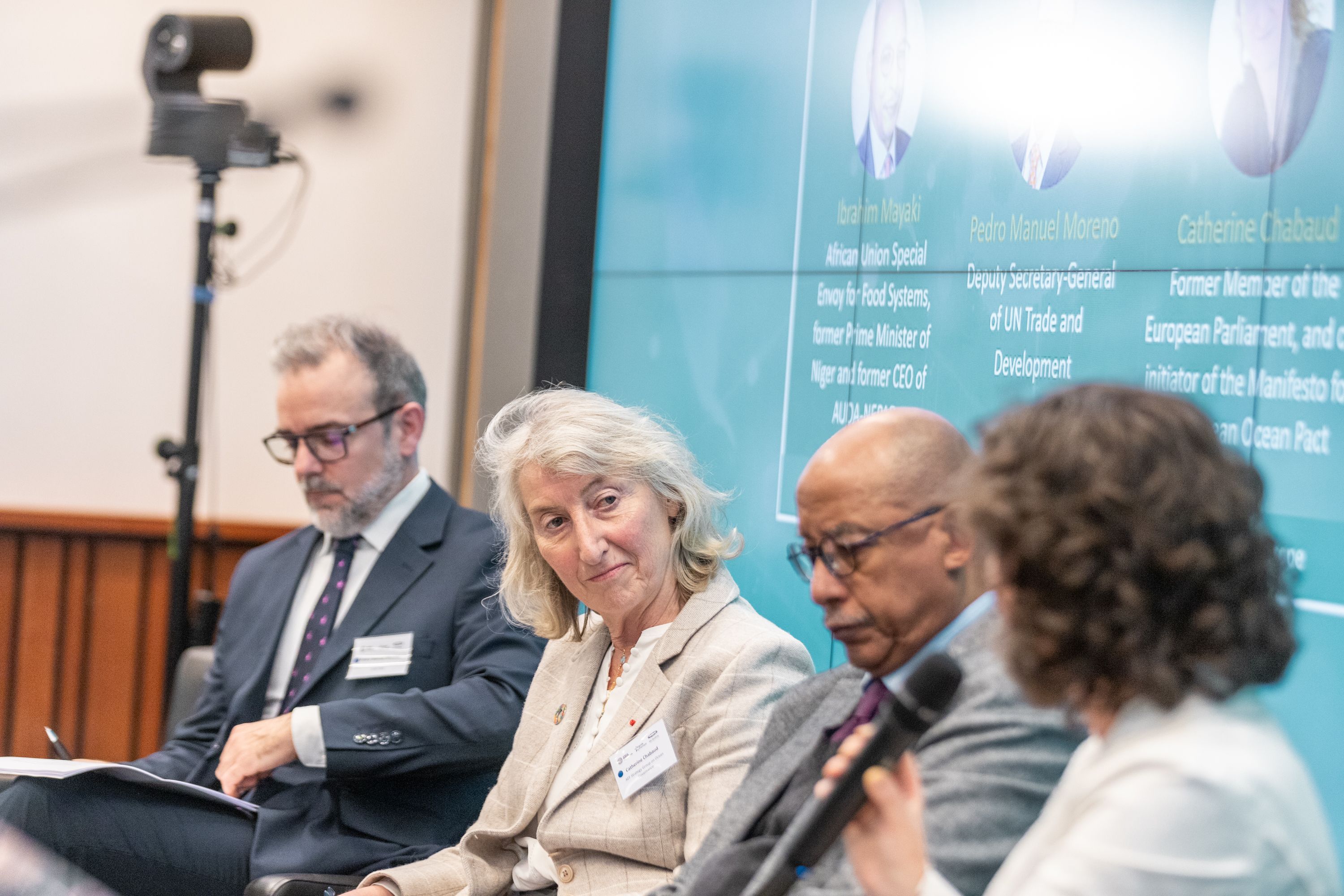
Investing In Resilient Health Systems: At The Nexus Of Pandemics, Conflict & Climate
11.50 – 12.40 CET
Perspectives by Dr Jean Kaseya, Director-General of the Centre of the Africa Centres for Disease Control and Prevention (Africa-CDC), Marta Temido, Member of the European Parliament and former Portuguese Minister of Health, and Dirk Brems, Director for Multilateral and Thematic Cooperation, Directorate-General for Development Cooperation and Humanitarian Aid at the Belgian Ministry of Foreign Affairs The discussion brought Health into central focus within the renewed AU-EU Dialogue including leveraging new action research on climate-health financing and providing insights on the increasing intersection of pandemics, conflict and climate.
Key takeaways:
- Support programmes that are proven to work such as the Partnerships for African Vaccine Manufacturing (PAVM), the African Pooled Procurement Mechanism (APPM), and Team Europe Initiative on Manufacturing and Access to Vaccines, Medicines and Health Technologies (“MAV+”). Dr Kaseya called on the international community and funders to support Rwanda in its efforts to halt the spread of Marburg, which has shown efficiency and transparency in its management.
- Invest in primary healthcare and universal health coverage, the foundations and the only sustainable solution to build resilient health systems.Domestic resource mobilisation was identified as a key ingredient to increase such investments, as was the next EU Multiannual Financial Framework.
- Develop a common Africa-Europe policy on health workforce. Beyond investment, the key ingredient for strong healthcare systems is its workforce. A common Africa-Europe policy for health professionals, considering the realities of demographics and brain drains, should leverage circular migration for the benefit of both continents.
“I fully disagree in so many things that you mention, and this is very good, because it’s very different from normal situations that we have in these type of conferences. Usually we say I fully agree and I fully support, but I fully disagree, why? Because...” Marta Temido, Member of the European Parliament and former Minister of Health for Portugal.
“Mature relationships are ones where you can have honest discussions without breaking up. That mature relationship requires both Africa and Europe to bring all the nuances to the table - what is working, what is not, what the difficult areas in the relationship are both internally and externally.” Spring Gombe, Senior Fellow for Health at the Africa-Europe Foundation.
- Watch the session here.
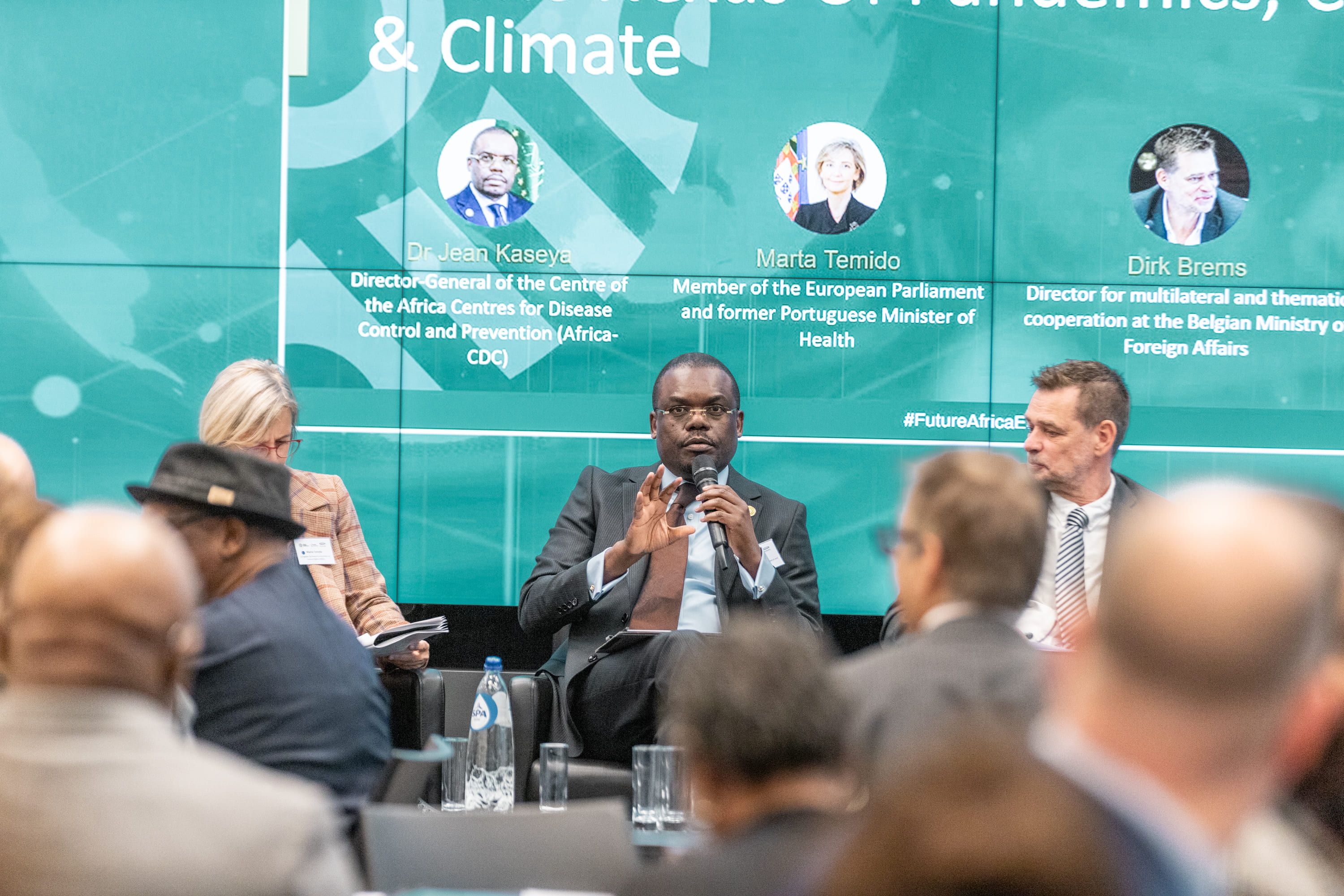
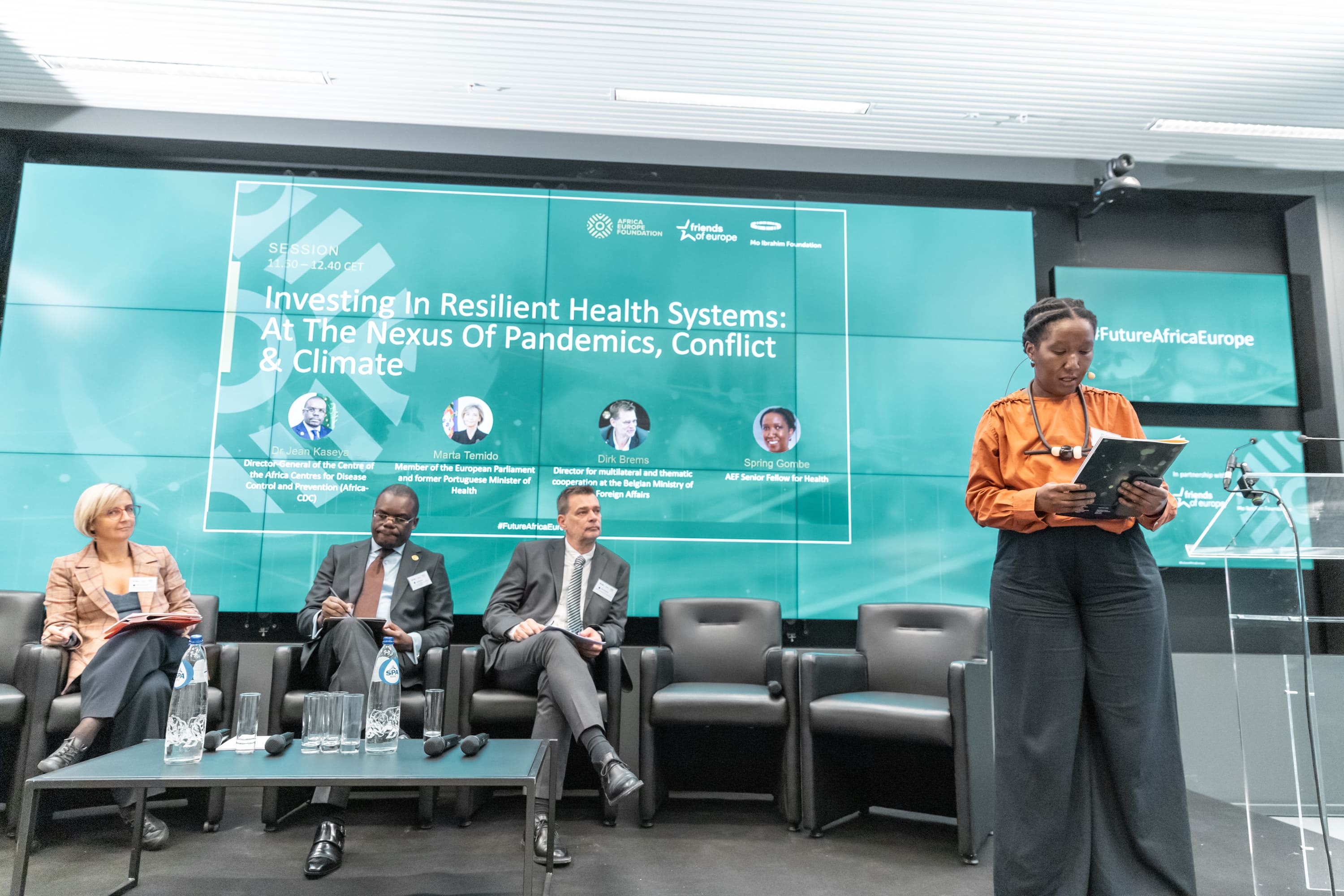
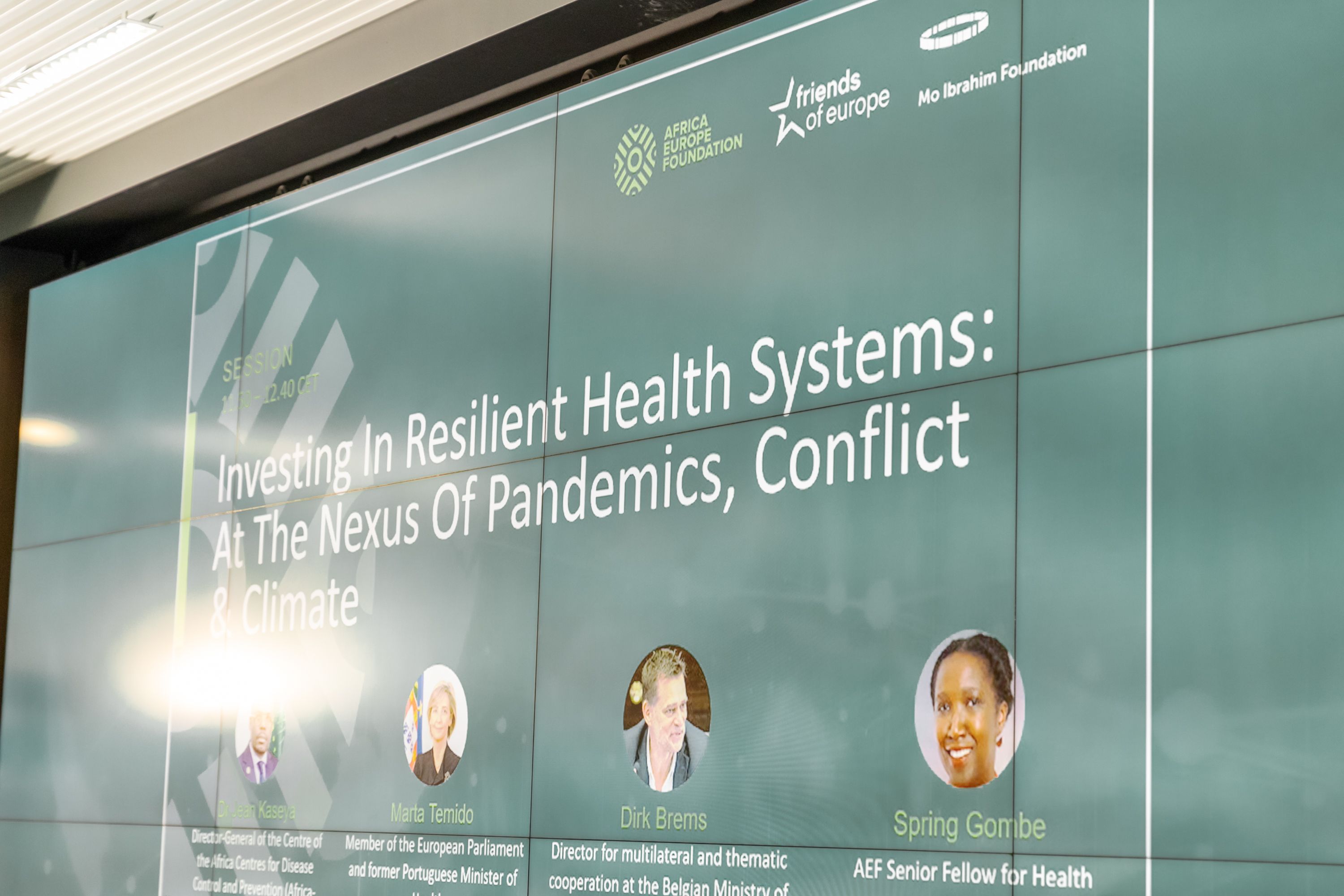
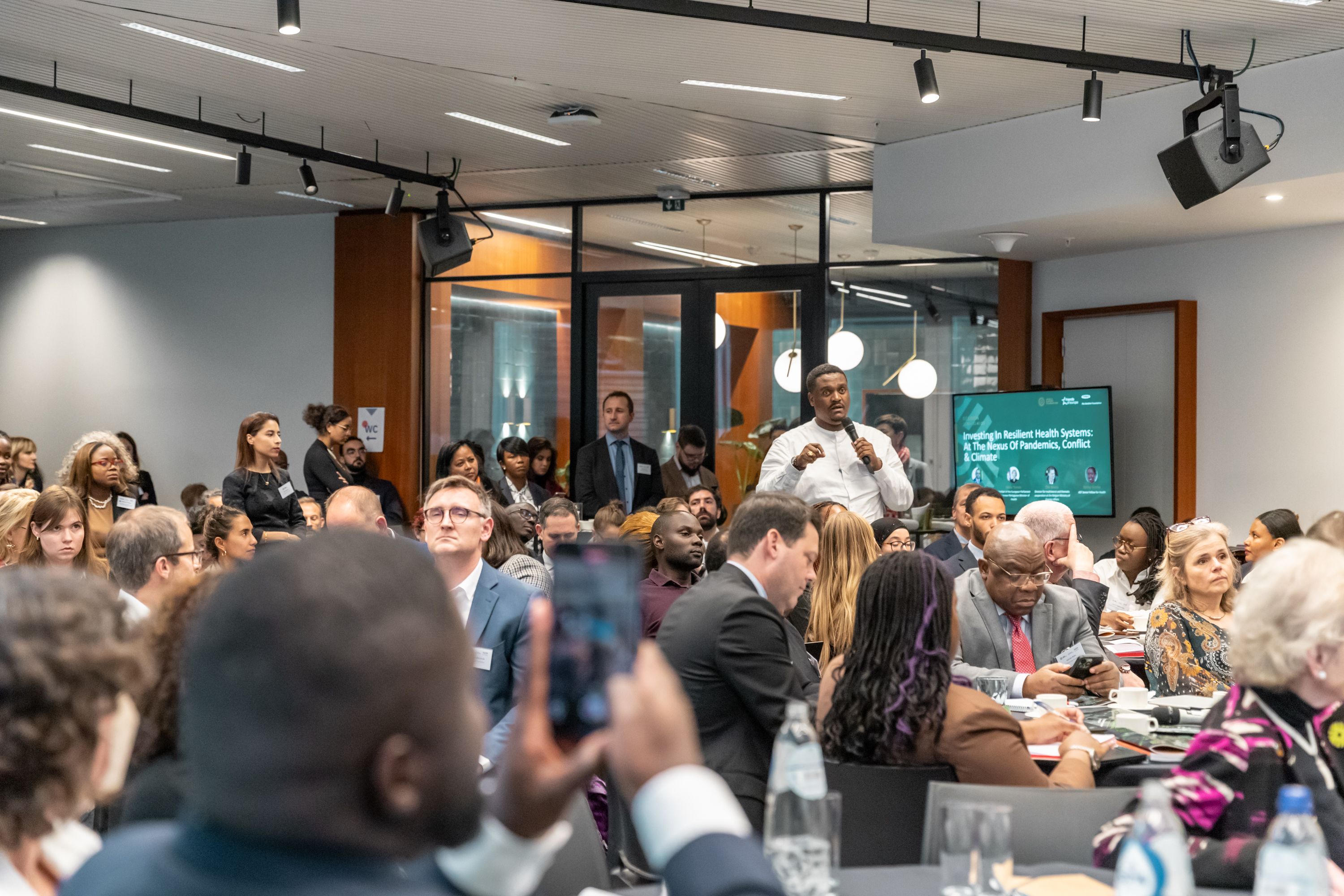
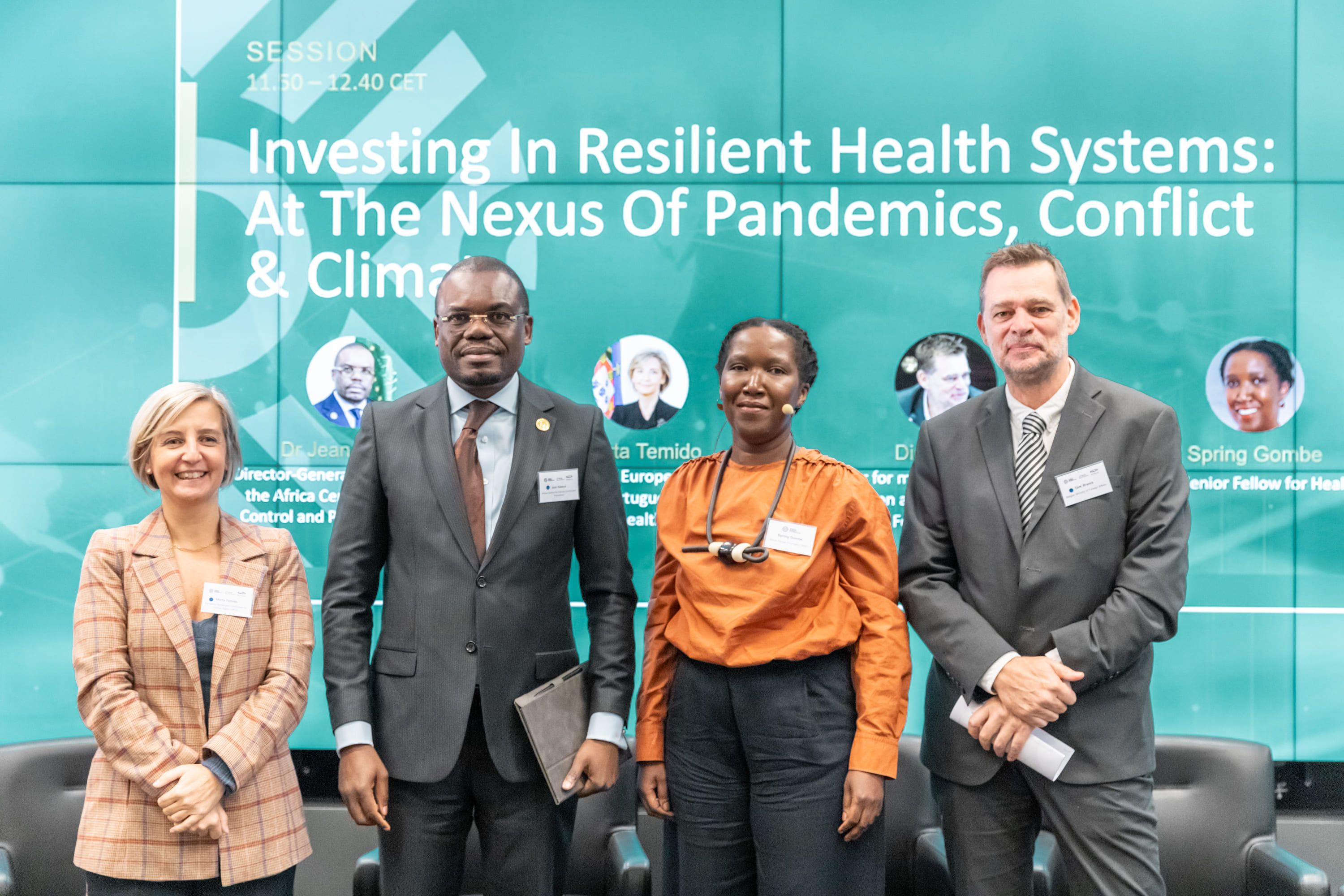
Our Infrastructure Of Tomorrow: Digital Transformation And Artificial Intelligence
13.40 – 14.30 CET
Perspectives by Dr Seydina Moussa Ndiaye, Program Director FORCE-N and member of the UN Secretary-General’s High-Level Advisory Body on Artificial Intelligence, and Kate Kallot, Founder and CEO of Amini, with Samir Abdelkrim, Founder of EMERGING Valley and StartupBRICS, Friends of Europe European Young Leader.
The discussion will focus on the potential for Africa and Europe to leapfrog the world in sustainable and responsible digital infrastructure development as well as the way digitalisation is already shaping the future of key sectors from global health to energy and agriculture. It will address the need for governance frameworks that promote the responsible use of AI and emerging technologies relevant for both continents, and the investment required for implementation.
Key takeaways:
-
Cross-continental collaboration has the power to accelerate AI innovation, skills development and responsible governance.
-
For Africa in particular, gaps in infrastructure, including compute capacity and data sharing frameworks, should be closed taking an ecosystem approach that involves government, private sector and youth to unlock full potential.
-
Data ownership, cultural representation, and tailored policies are essential for ethical and effective AI development in Africa.
-
Watch the session here
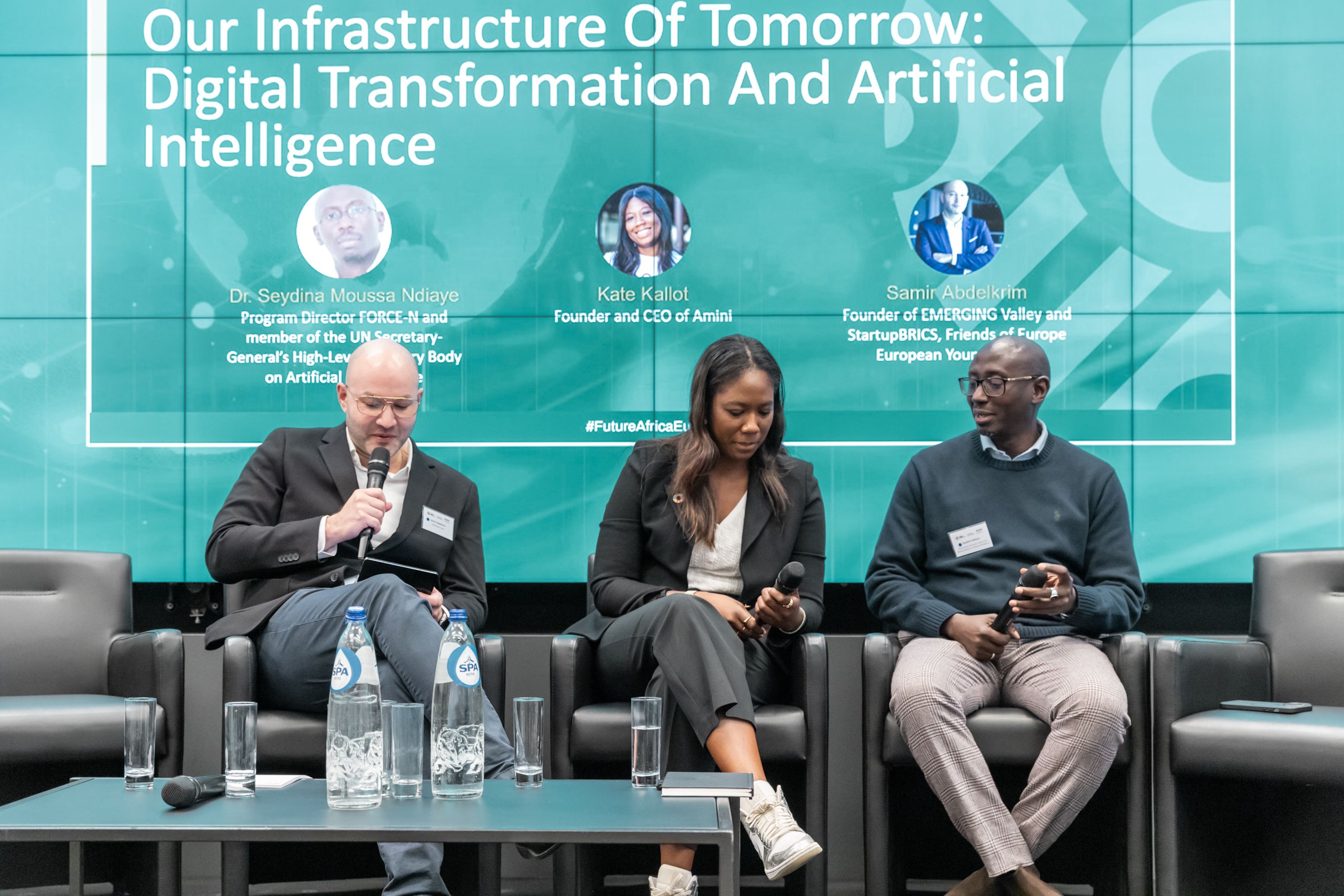
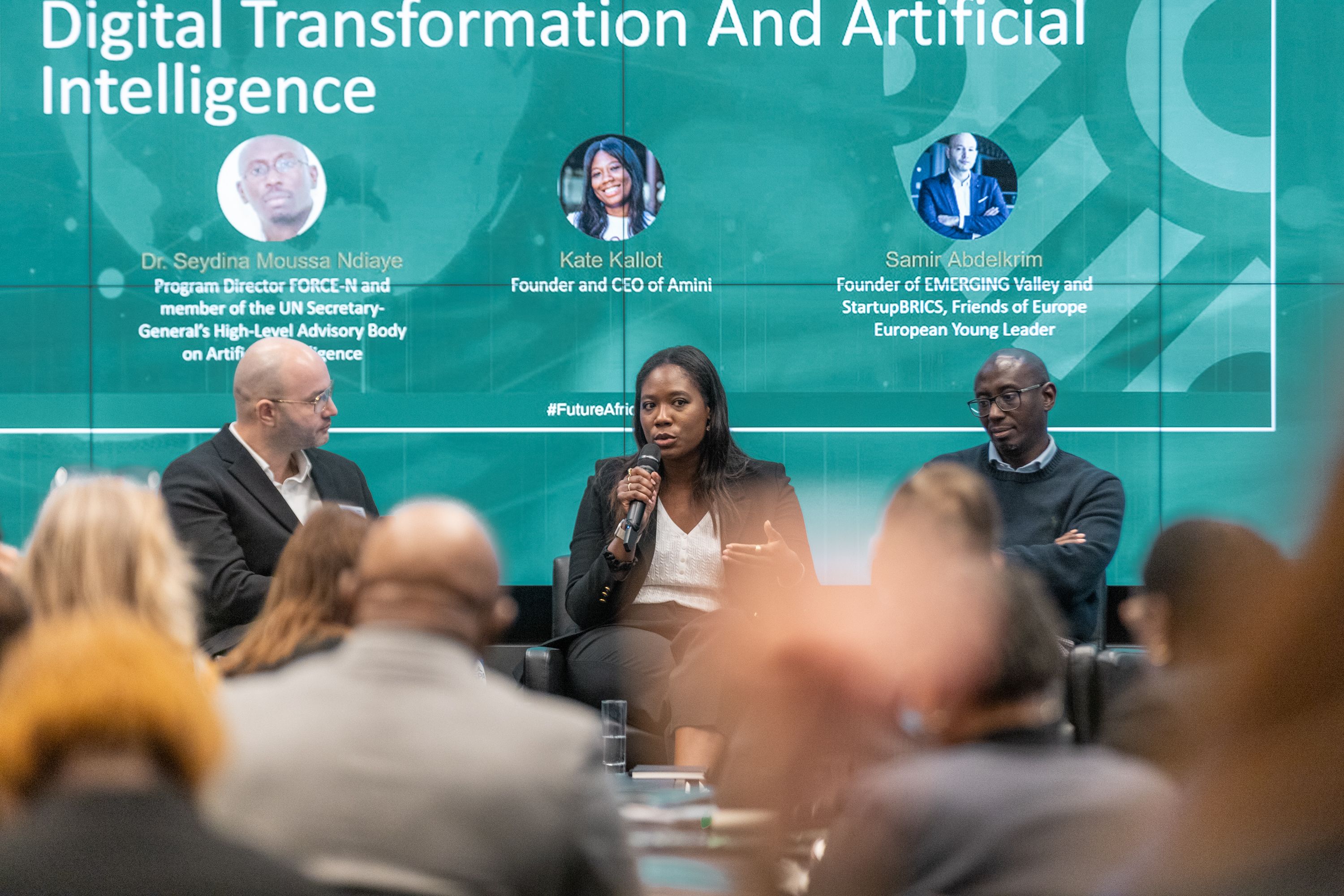
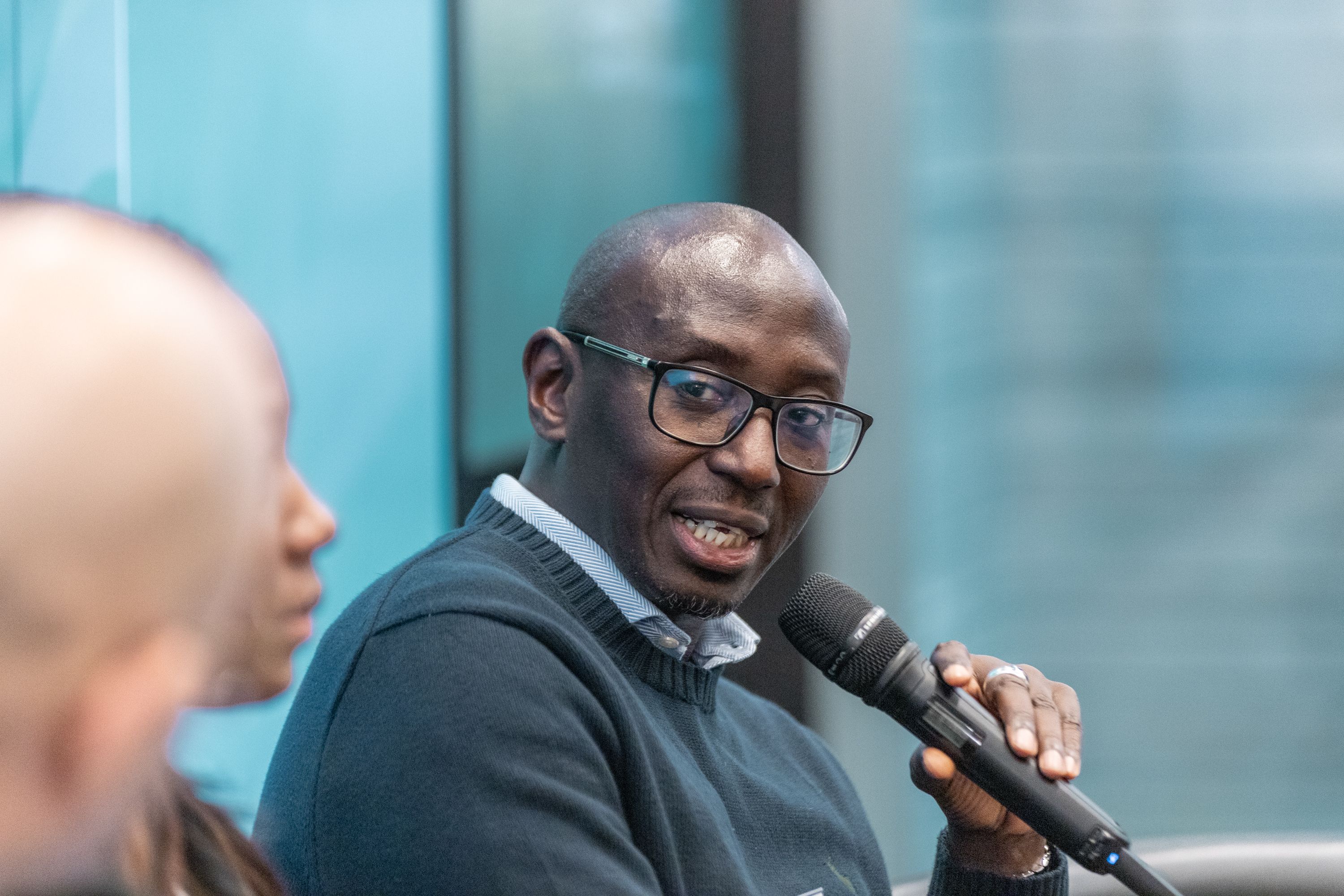
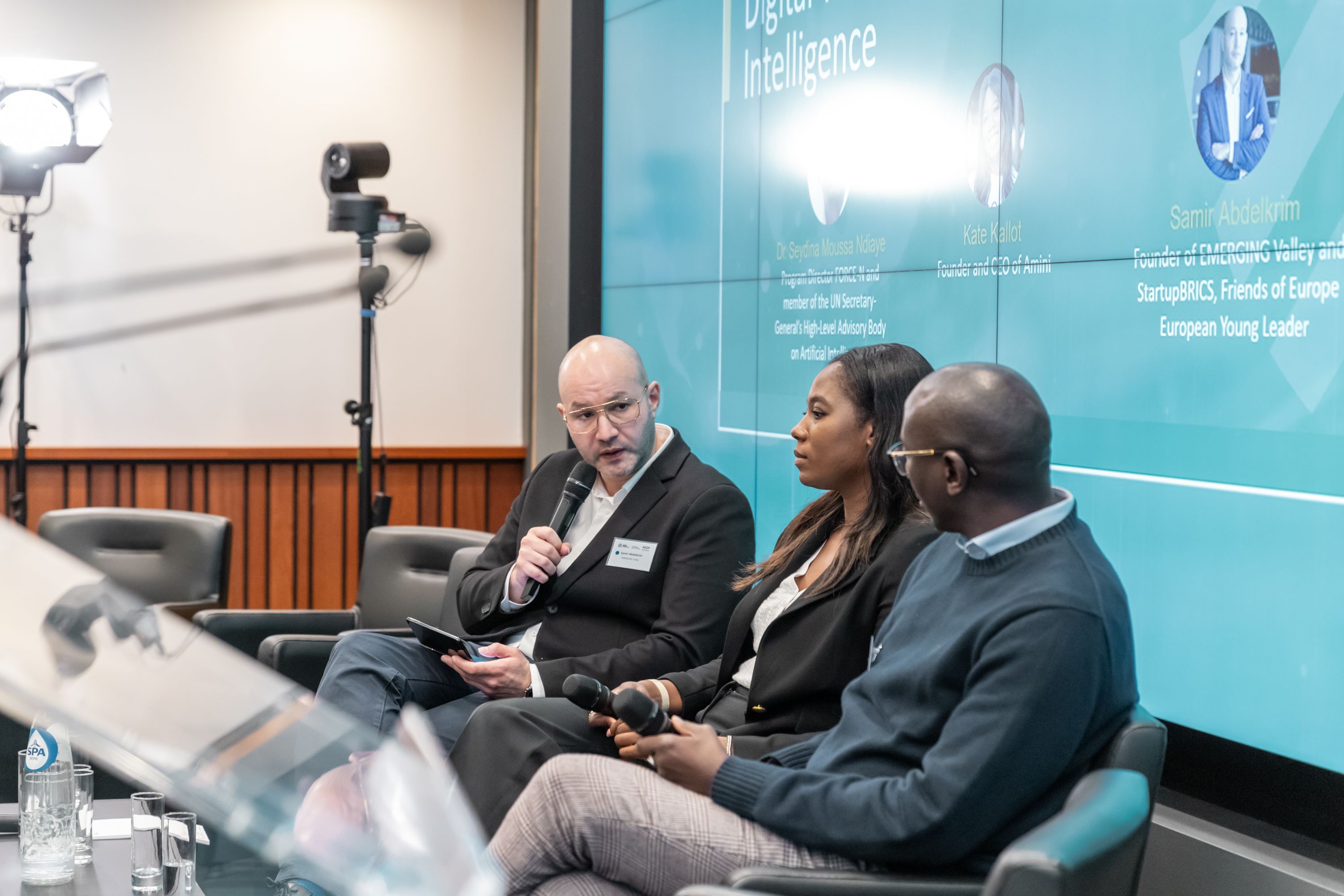
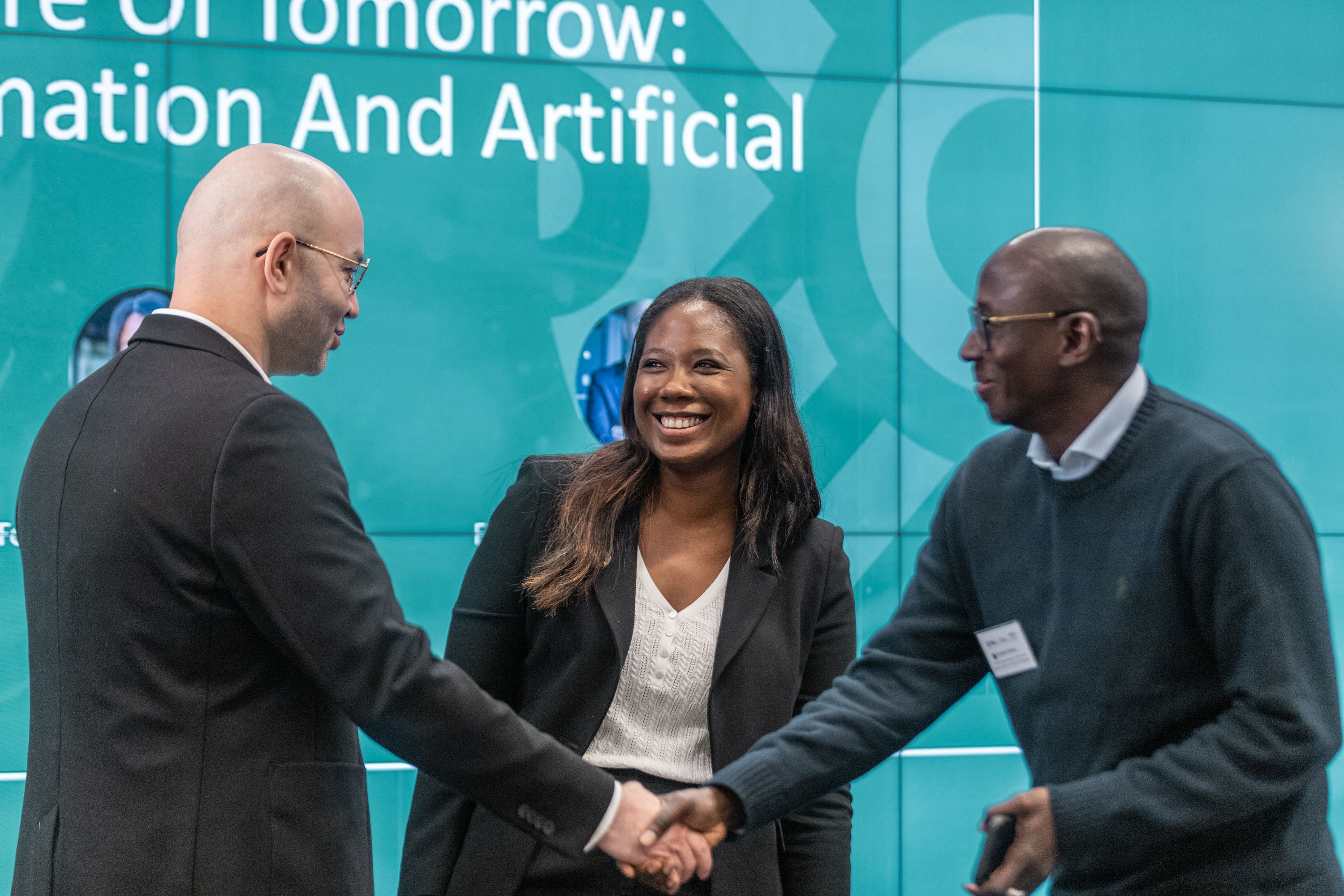
Rethinking Global Partnerships – Moving From An Aid To An Investment Mindset
14.30 - 15.30 CET
Perspectives by Jean van Wetter, CEO of Enabel, Luc Bagur, Director for Sustainable Development Policy and Coordination at the European Commission Directorate-General for International Partnerships, Anja Langenbucher, Director of the Gates Foundation Europe Office, Reinhold Elges, Director of the GIZ Brussels Office Representation, Papa Amadou Sarr, Executive Director in charge of Partnerships, Mobilization and Communication at the French Development Agency (AFD), and Mouctar Bah, President of the Brussels Africa Hub.
The discussion reflected on how partnerships are formed and who should be involved in shaping them with a new AU-EU institutional chapter currently unfolding. It marked an important milestone for Friends of Europe’s DRIVE Impact Initiative, providing the first opportunity to publicly discuss the outcomes of its Working Group meetings.
- Watch the session here.
